The Most Notorious Crime in Every State in the U.S.
Updated April 27 2020, 4:20 p.m. ET

Just as every state has claims to fame they're proud of, every state has been the site of a crime so unforgettable, it unfortunately becomes intertwined with the history of the area. Whether it was The Golden State Killer who stalked victims in California, or the Honolulu Strangler who terrified the beaches of Hawaii.
From unsolved cases dating back more than a century to the most high-profile court cases of the last few decades, here is the most notorious crime from each state in the U.S.
Alabama: The Sixteenth Street Baptist Church bombing (1963)
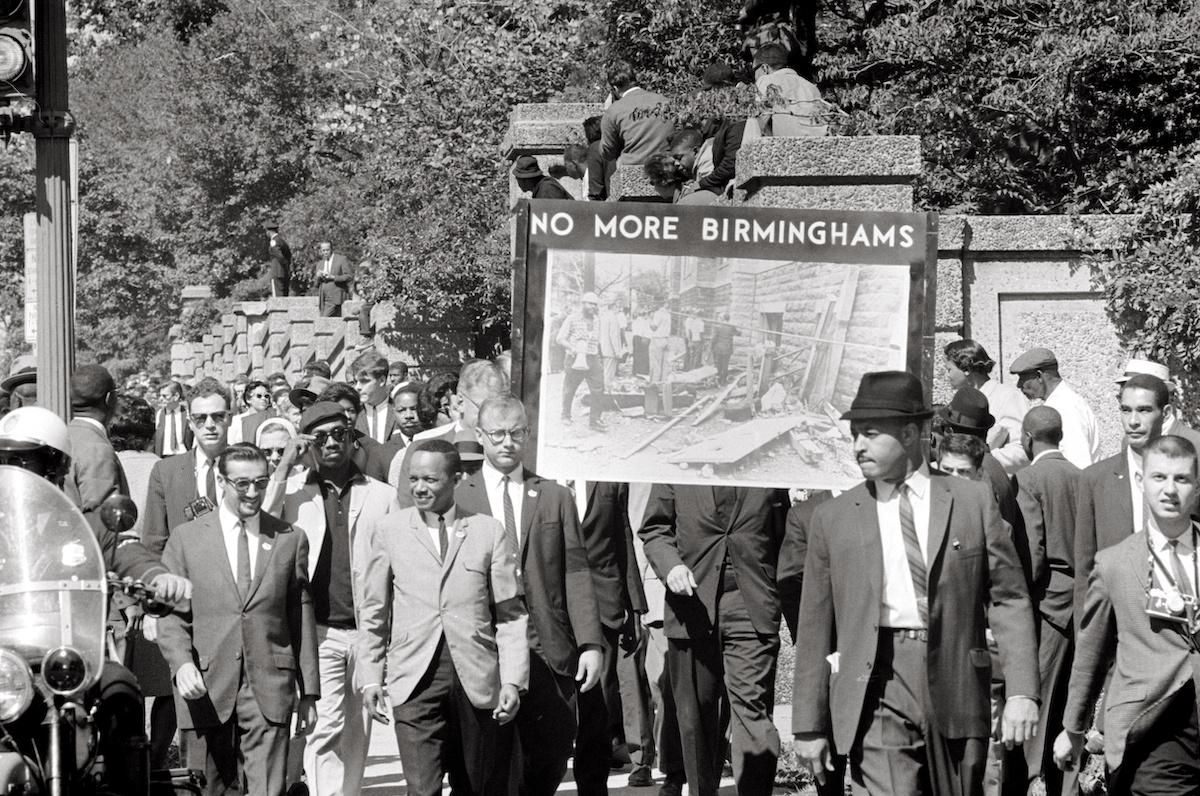
This terrorist attack by the Ku Klux Klan on a black church is still the most notorious in Alabama history for its senselessness as well as for how long justice was delayed. The bombing killed four people — three 14-year-old girls and one 11-year-old girl — and injured more than 20 others. A funeral for three of the four girls was attended by Rev. Dr. Martin Luther King, Jr. who delivered a speech during the proceedings.
Despite the high-profile nature of the massacre, the FBI ended their investigation after two years and blocked any impending prosecutions. The case wasn't reopened until the 1970s, with the first conviction occurring in 1977. Robert Chambliss was sentenced to life in prison. Two of the remaining three bombers, Thomas Blanton and Bobby Cherry, weren't convicted until the early 2000s and the fourth suspected participant, Herman Cash, was never charged and died a free man.
Alaska: Robert Hansen the Butcher Baker
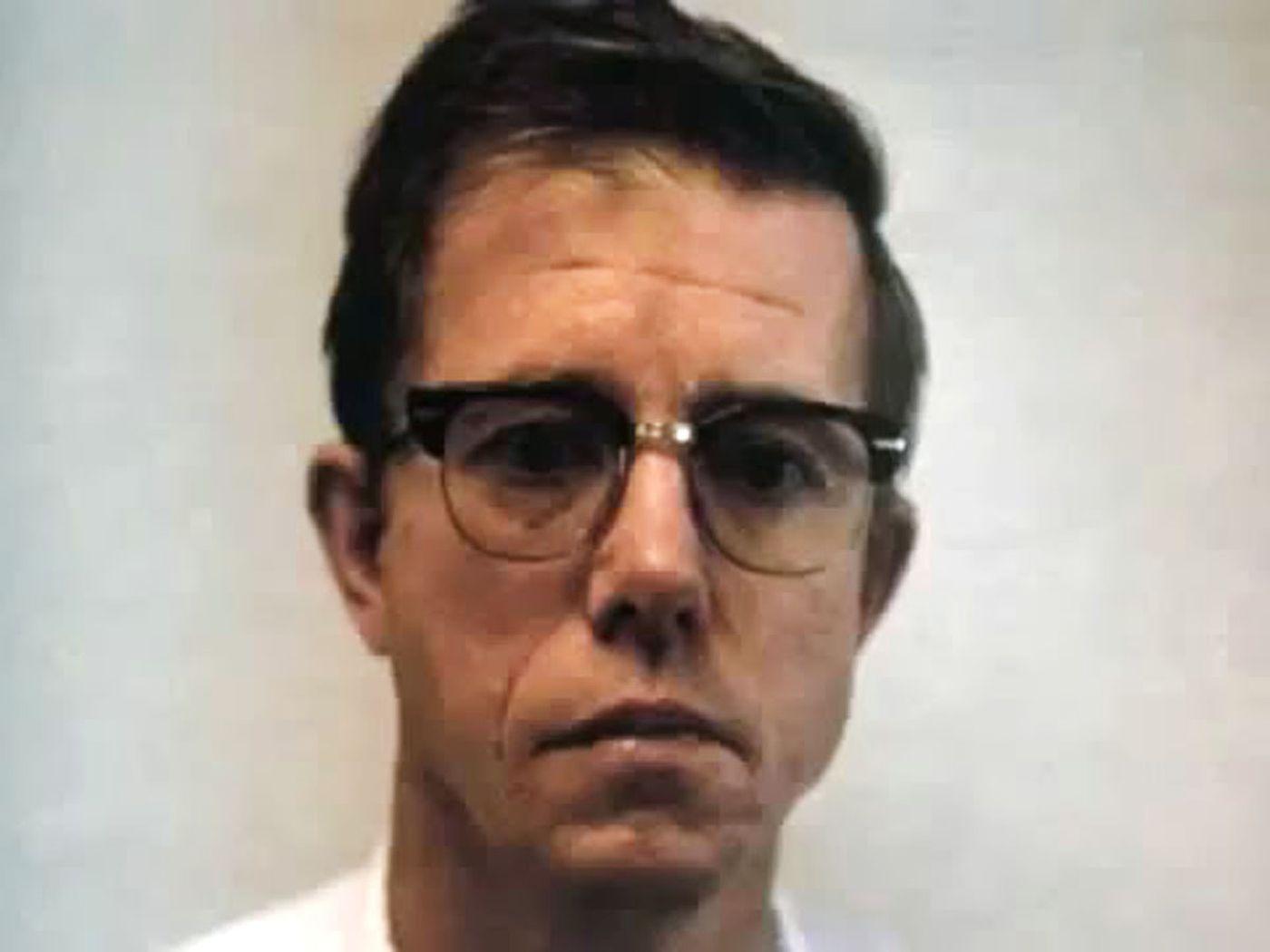
Robert Hansen was a serial killer who preyed on women in the Anchorage area throughout the 1970s and early 1980s. He killed at least 17 women and admitted to raping 30 others. His nickname comes from his profession as a baker.
He mainly targeted sex workers because they were "harder to track and less likely to be missed," and would often abduct them and release them in the wilderness, only to hunt them down with a rifle as they fled. He was sentenced to 461 years and died in 2014 at age 75.
Arizona: Jodi Arias

Certainly there are killers with higher body counts in the Grand Canyon State, but their notoriety is eclipsed by that of Jodi Arias, who killed her ex-boyfriend Travis Alexander in cold blood and tried to convince a jury that the grisly crime was in self defense despite the overkill and clear signs of premeditation.
The case got a lot of media attention, likely due to the fact that Jodi was an attractive young woman, not the typical defendant one pictures with such brutal crimes, and for the graphic details about her sex life that unfolded during the trial.
Arkansas: The West Memphis murders of Stephen Branch, Christopher Byers, and James Moore
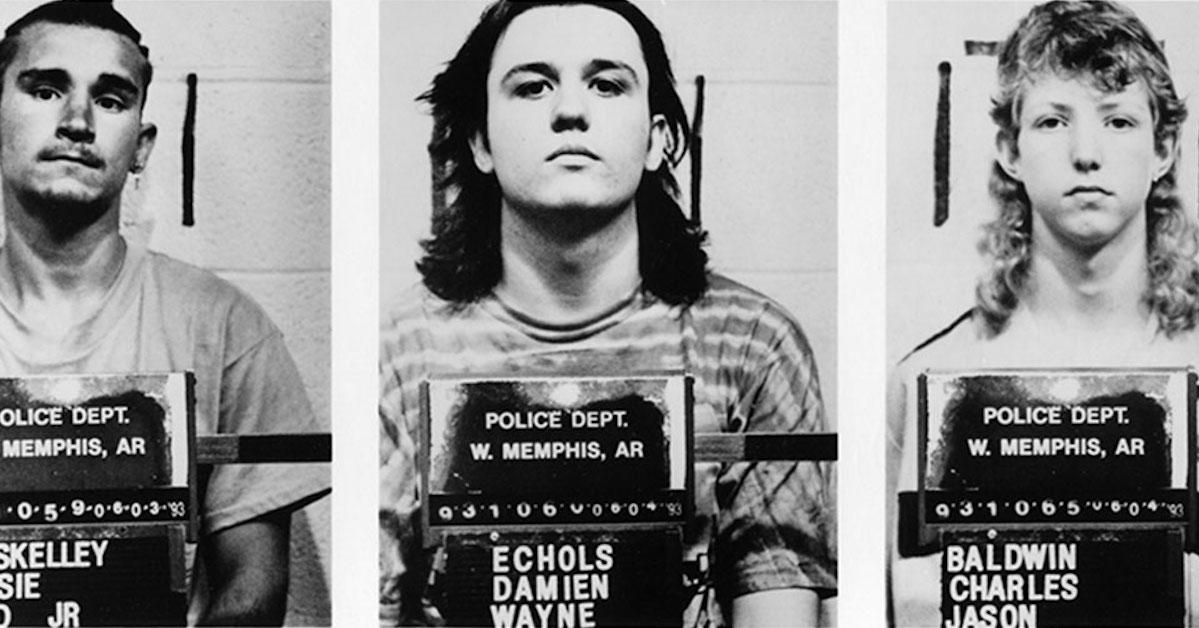
In 1994, three teens were convicted for murdering three young boys in West Memphis, AR, with the prosecution asserting that the killings were part of a Satanic ritual. The three defendants, Damien Echols, Jessie Misskelley, and Jason Baldwin say they were targeted because they were misfits who enjoyed heavy metal music.
The trial and conviction of the "West Memphis Three" drew national attention, with celebrities like Johnny Depp and Eddie Vedder advocating for their exoneration. In 2010, the three were allowed to enter an Alford plea, which allowed them to assert their innocence while acknowledging there is sufficient evidence to convict them. A judge released them after serving 18 years in jail. The real killers have never been caught.
California: The Golden State Killer (AKA the East Area Rapist / Original Night Stalker)
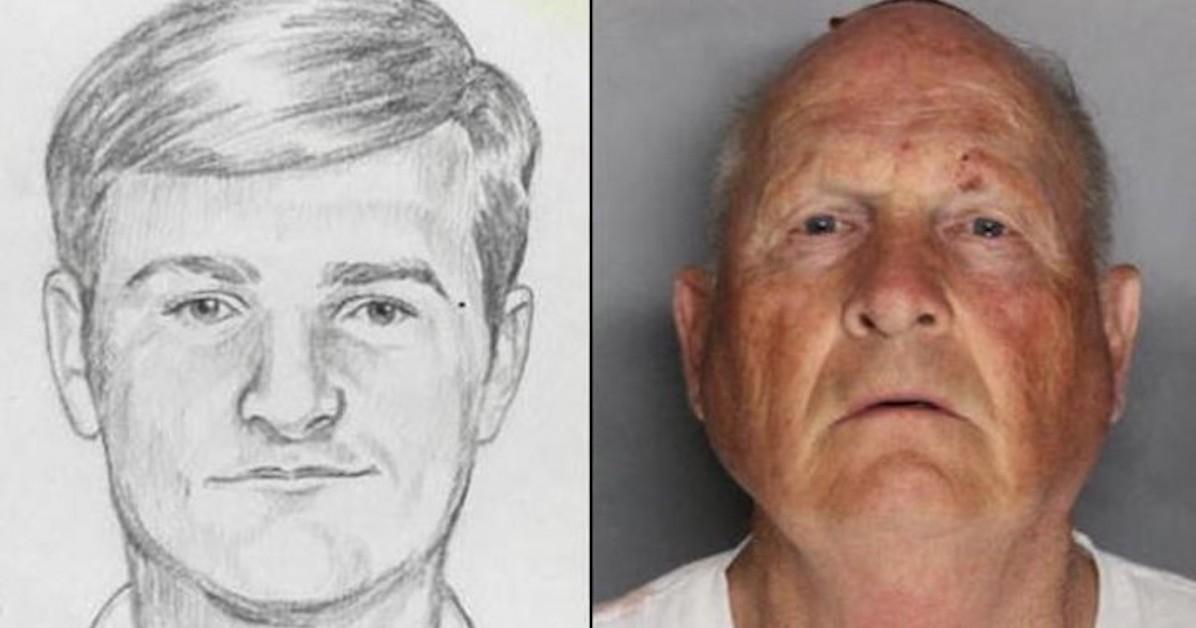
California has a lot of candidates to consider and honestly, we mulled it over for a long time, considering the unsolved Zodiac Killer case, the Manson Family murders, and even the most famous unsolved case of all time, the Black Dahlia murder. But the Golden State Killer wins for the nature of his crimes and for how long he successfully evaded capture. It wasn't until DNA technology was advanced enough that California investigators discovered the same serial rapist who terrorized Northern California in the '70s had moved south and escalated to murder, taking the lives of at least 13.
The GSK seemed motivated by inflicting terror on his victims. He would often target heterosexual couples, subduing and restraining the men while assaulting their wives or girlfriends. Survivors would often receive prank phone calls later so the attacker could reignite their terror and feed off it.
On April 25, 2018, police announced the arrest of Joseph James DeAngelo, whose DNA matched samples found at crime scenes.
Colorado: the murder of JonBenét Ramsay
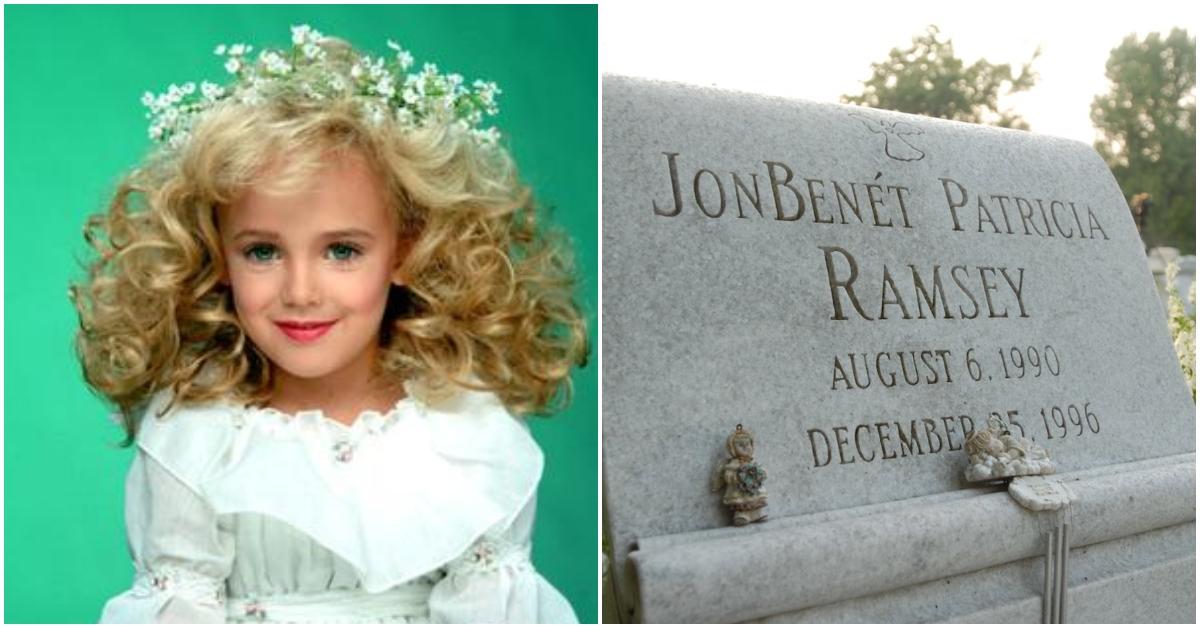
Perhaps we'll never have answers as to what happened to this 6-year-old pageant princess — though plenty of people obsessed with the case are convinced they've solved it — but the strange circumstances around the death of JonBenet have made it one of the most talked about child murders in history.
Connecticut: The Sandy Hook massacre
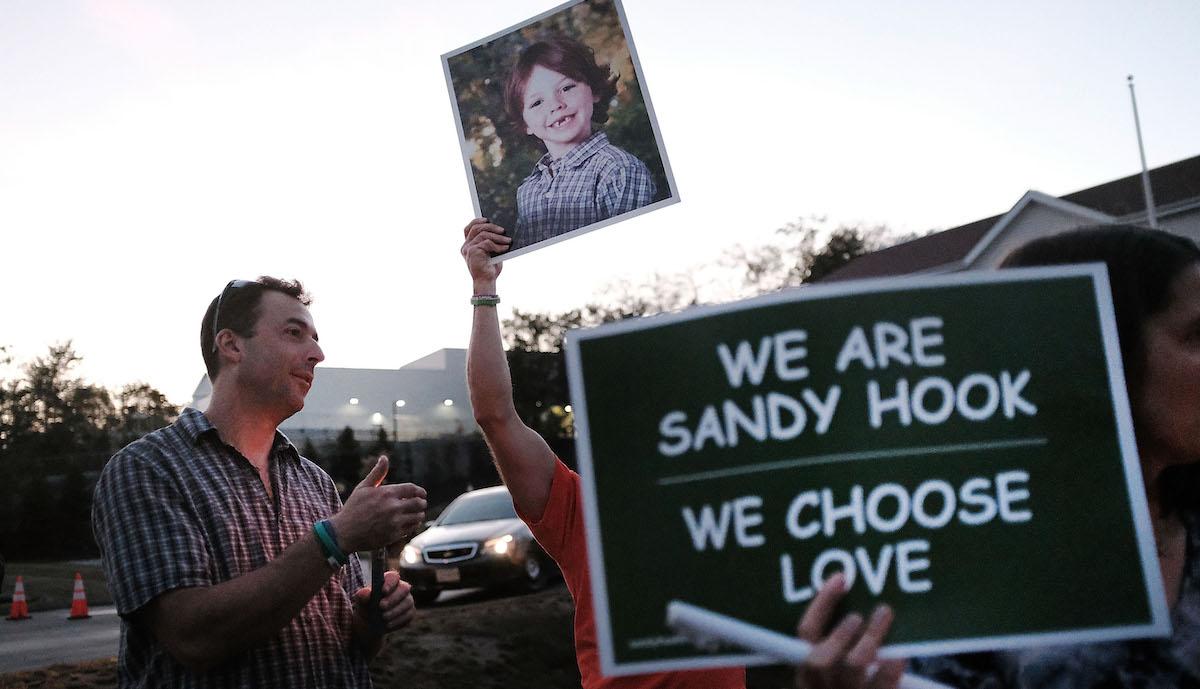
The Sandy Hook Elementary School shooting will likely remain the most notorious crime in Connecticut history for all time. At least I hope nothing worse befalls the state. In 2012, 20-year-old Adam Lanza devastated the town of Newtown, CT, killing 27 in total. Lanza first murdered his mother before driving her car to the school. Some victims were children as young as 6. Lanza completed suicide as first responders arrived.
Delaware: The Chocolate Candy Murders
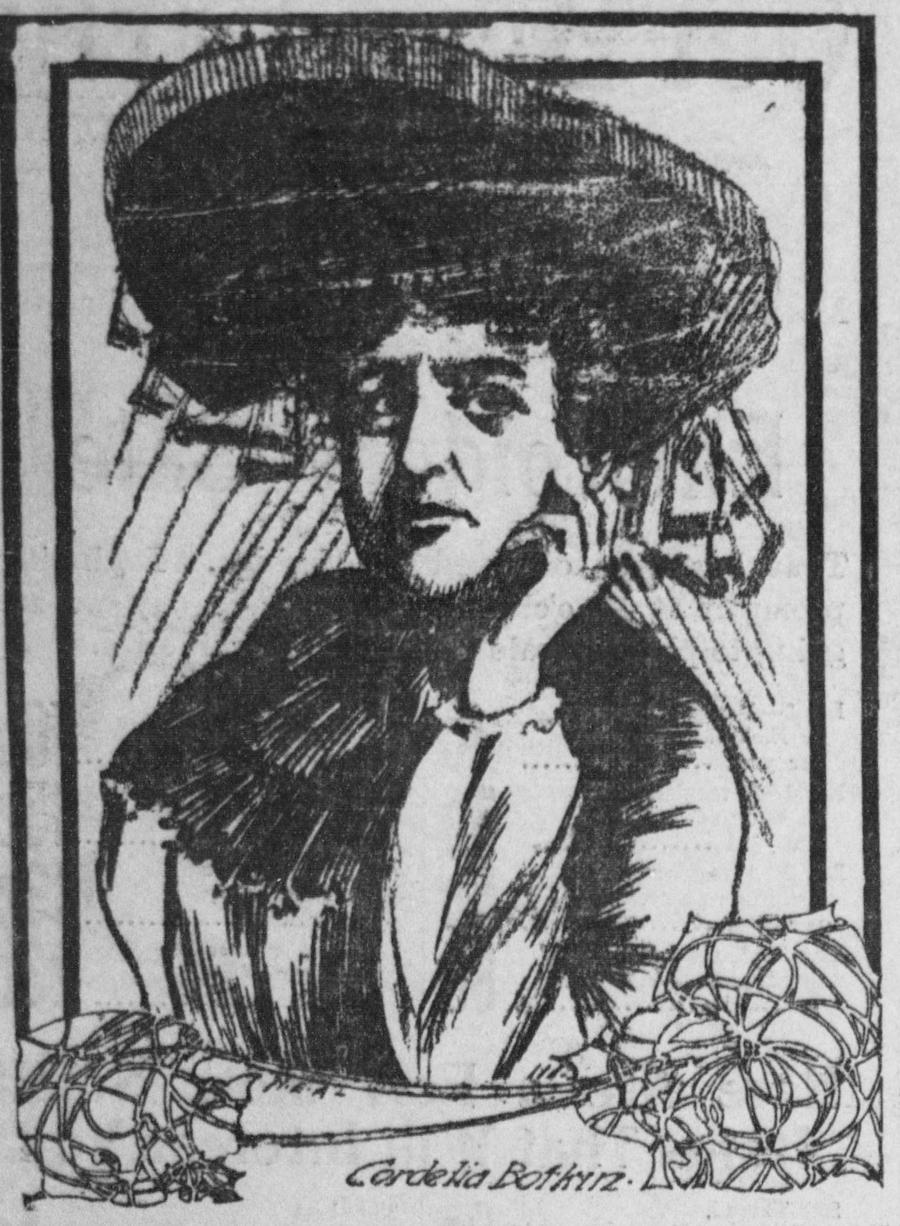
Cordelia Botkin is not only the most notorious killer in Delaware history but the first to commit murder by mail. She first sent anonymous letters to Elizabeth Dunning about affairs she had with Dunning's husband. Then she sent a box of chocolates with the note, "With love to yourself and baby."
Elizabeth shared the chocolates with her sister and some others on the porch of her father's home. Two days later, Elizabeth and her older sister, 44-year-old Ida Harriet Deane, died from arsenic poisoning. The four others who ate the poisoned candies lived. A handwriting comparison of the note that accompanied the candy to previous correspondence from Botkin linked her to the crime.
Florida: The murder of Caylee Marie Anthony
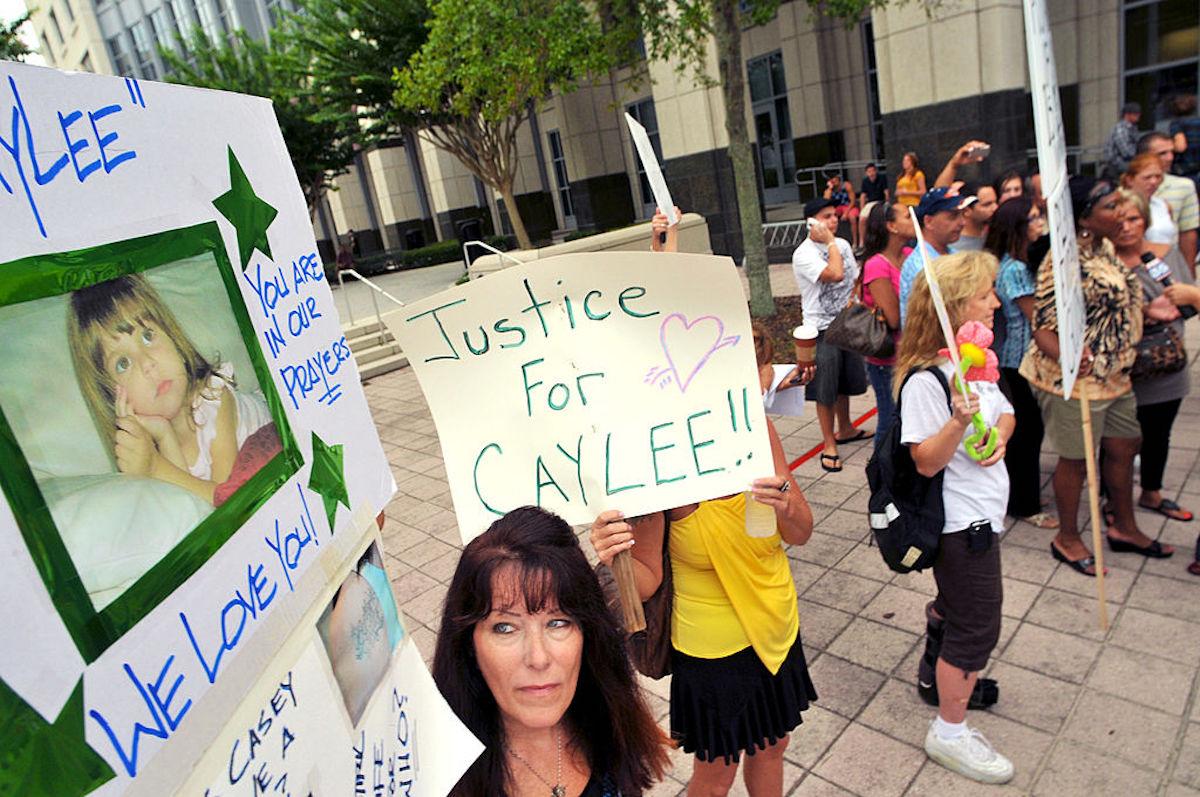
Florida is another state with plenty of candidates for most notorious crime. However, the high-profile trial and endless documentary specials and movies of the week pushed this technically unsolved crime to the top of the list. Though mother Casey Anthony was acquitted of first-degree murder in the 2008 death of her daughter, 2-year-old Caylee, the public seems convinced the young mom, who didn't report her daughter missing for a month, is the responsible party.
Georgia: The Atlanta child murders
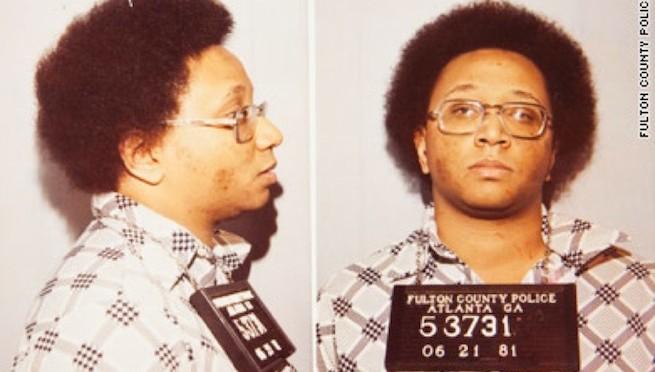
A string of murders of young black boys terrorized Atlanta families from 1979 to 1981. The slayings have been attributed to Wayne Williams, an aspiring talent scout and record producer. However, Williams was never tried and convicted of any child murders, but rather in the deaths of two adult men. Investigators, including famed FBI profiler John Douglas, believe "the forensic and behavioral evidence points conclusively to Wayne Williams as the killer of 11 young men in Atlanta." Also, strong DNA evidence from hairs found on the body of 11-year-old Patrick Baltazar link to Williams and his family's dog.
Hawaii: The Honolulu Strangler

The most notorious crime of the Aloha state is an unsolved string of serial murders of women whose bodies were found in lagoons around Honolulu and neighboring Waipahu from 1985 to 1986. All five victims were bound, raped, and strangled. As of yet, no one has been apprehended.
Idaho: Joseph E. Duncan III
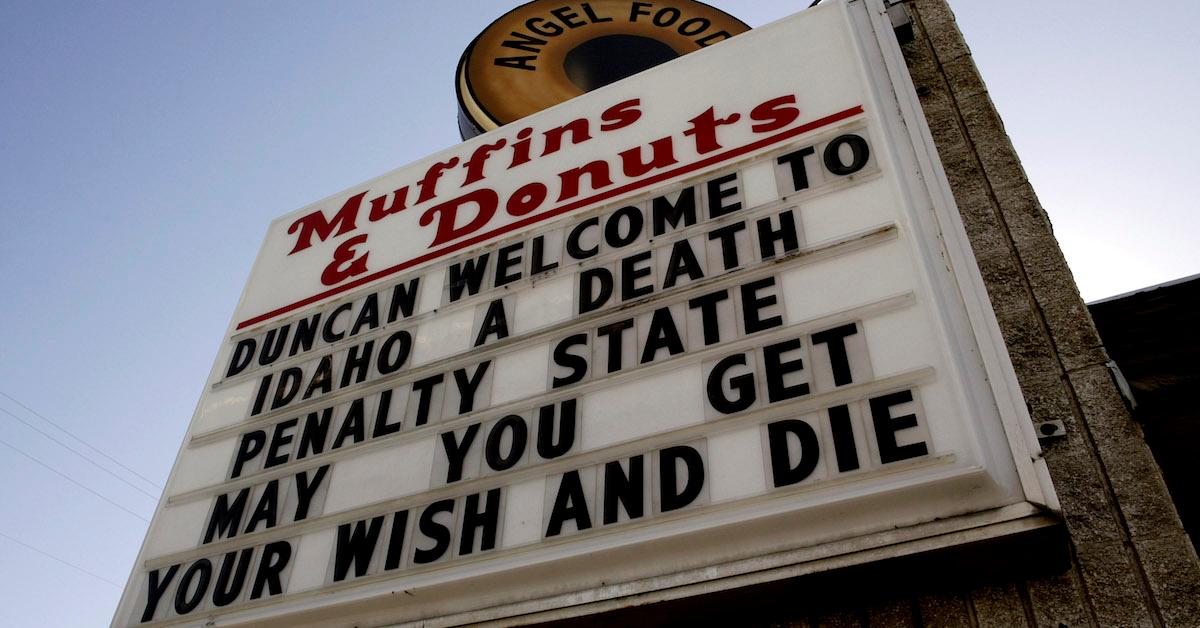
In 2005, the convicted killer and child molester killed 40-year-old Brenda Groene, her boyfriend Mark McKenzie, and her 13-year-old son Slade and kidnapped her two other children, Dylan, 9 and Shasta, 8. Seven weeks later, Shasta turned up alive at a Coeur d'Alene Denny's. Her brother, unfortunately, was found murdered days later. Shasta's testimony was instrumental in putting together what had happened to her family and ensuring Duncan's conviction. The killer later admitted to three other murders in California and Washington, though he has not been convicted of two of the three.
Illinois: John Wayne Gacy
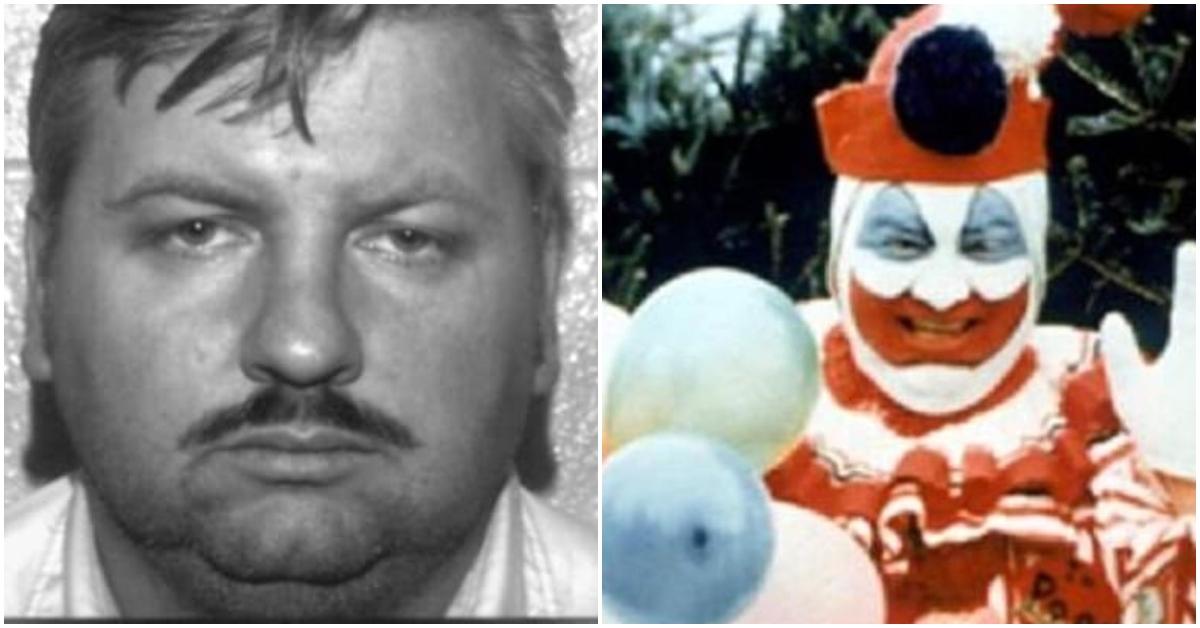
Illinois is yet another state with plenty of good candidates for the "most notorious crime" superlative. However, you truly don't get much eviler or more sensational than Killer Clown John Wayne Gacy. He killed at least 33 young boys and men ranging in age from 15 to 21 and buried their bodies in the basement and crawl space of his home. At his execution he simply had three words for spectators: "Kiss my ass."
Indiana: Belle Gunness
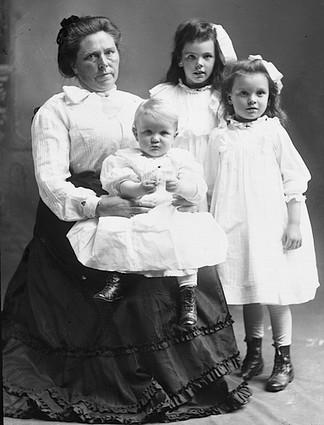
Born Brynhild Paulsdatter Størseth, Belle Gunness was a black widow who would post ads wooing men from Indiana and Illinois, whom she would murder by poisoning, bludgeoning and in a few cases arson, collecting on the insurance money or on whatever cash assets she had convinced them to bring along from their hometowns. Then, when the heat turned up, she killed her three children and staged her death by decapitating an unidentified female victim. She enlisted her hired hand, Ray Lamphere, with setting fire to the farm to obscure the identity of her remains. She killed anywhere from 25 to 40 victims and was never caught.
Iowa: The Villisca Axe Murders
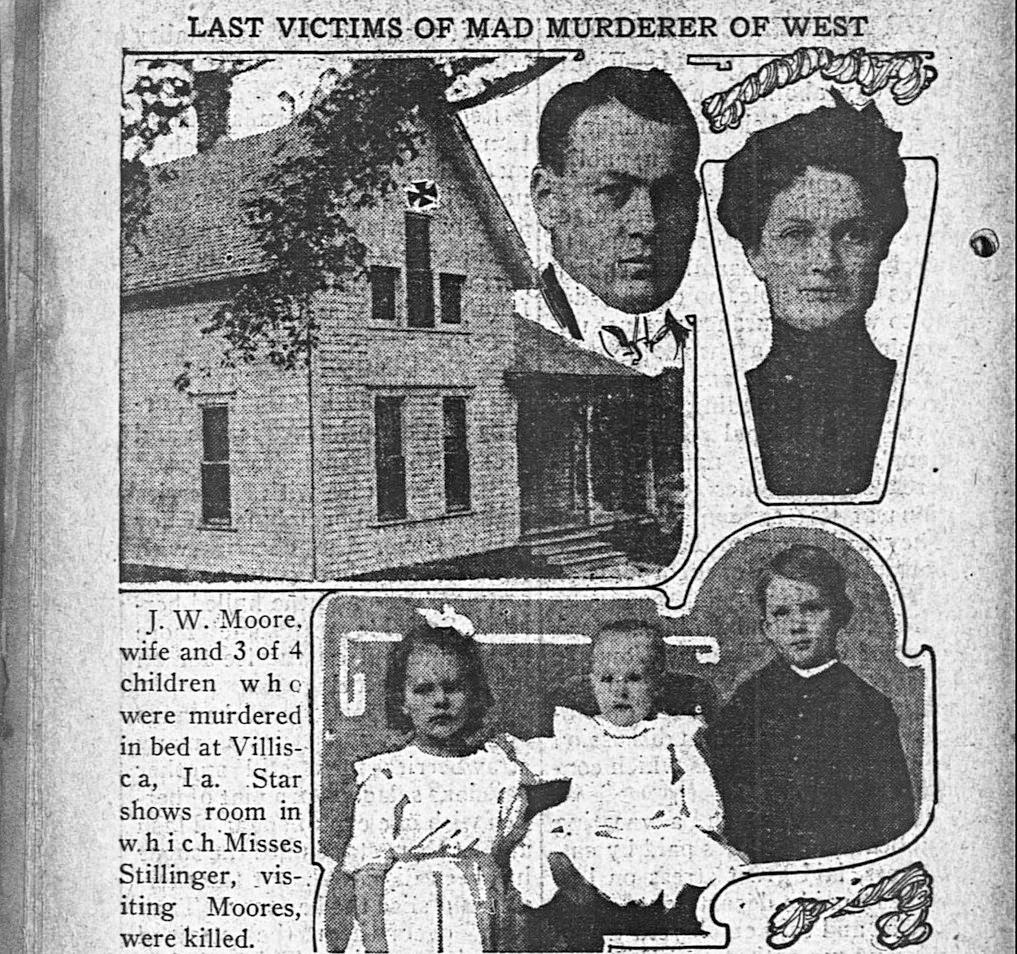
In 1912, eight people were murdered in the night, bludgeoned to death in their beds with the blunt end of an axe. The murder weapon was found beside a 4-pound slab of bacon. Reverend Lyn George Jacklin Kelly fell under suspicion for the brutal murders when he boarded a train west the morning after the murders and allegedly announced to his fellow travelers that an entire family back home was butchered in their beds — only at that point the bodies had not yet been discovered. Kelly confessed but recanted the confession at his trial. He was acquitted, and no one else was tried afterward.
Kansas: Dennis Rader, AKA the BTK Killer
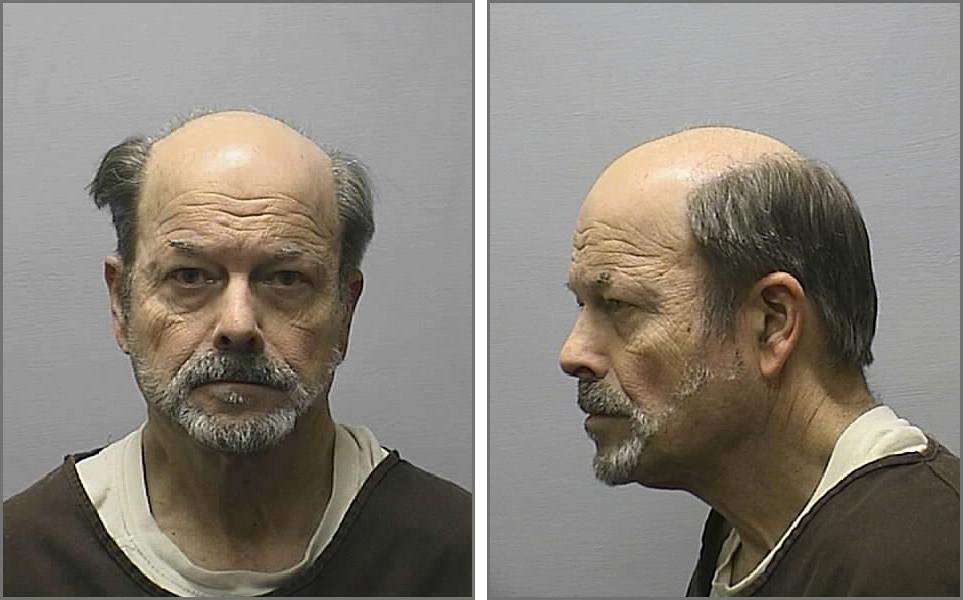
We've got a whole article on this guy, and even though he doesn't have a ton of competition, he's definitely earned his spot at the top of the most notorious killers in Kansas. He bound, tortured, and killed 10 people in the '70s and '80s. He would've gotten away with it, too, had he not continued to taunt police, who traced one of his packages to the church where he worked.
Kentucky: The Standard Gravure shooting

In 1989, Joseph Thomas Wesbecker went to his former workplace, a printing factory called Standard Gravure, with an AK-47, two handguns, a bayonet, and hundreds of ammunition rounds. It's believed he received a letter from the company shortly before the massacre, which announced his disability payments would soon be suspended. He killed eight employees and injured 12 others before taking his own life. The tragedy remains the deadliest mass shooting in the history of Kentucky.
Louisiana: The Axeman of New Orleans
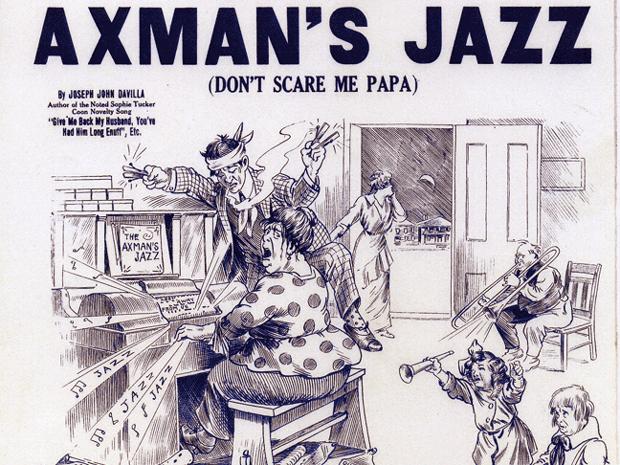
1919 sheet music to a Joseph John Davilla composition about the serial killer
Though it's been nearly 100 years since he struck, the Axeman of New Orleans is still the most notorious killer from the Pelican State. He killed six and injured six more over a period of 18 months from May 1918 to October 1919. The Axeman's story owes its staying power to a letter someone claiming to be the perpetrator sent to newspapers on March 13, 2019, saying he would kill again at 15 minutes past midnight on the night of March 19, but households who played jazz music at that time would live to see another day:
"I am very fond of jazz music, and I swear by all the devils in the nether regions that every person shall be spared in whose home a jazz band is in full swing at the time I have just mentioned. If everyone has a jazz band going, well, then, so much the better for you people. One thing is certain and that is that some of your people who do not jazz it out on that specific Tuesday night (if there be any) will get the axe."
Maine: The North Pond Hermit
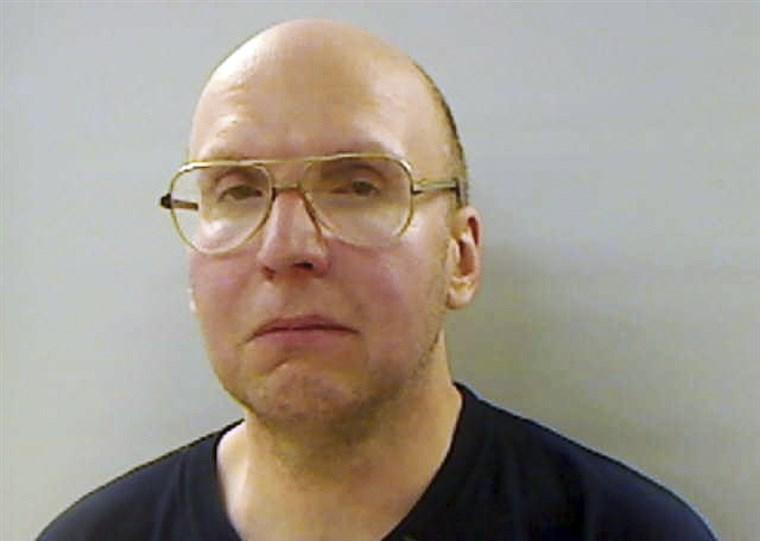
Maine has its share of murderers, but perhaps the most intriguing criminal in the state's history is Christopher Knight, who evaded police for 27 years as he committed more than 1,000 burglaries of homes in the North Pond area. Knight left home at 20 without notice and spent the next few decades living off food found in houses and vacation cabins in the area and stealing propane and other supplies to help him survive in the wild. He lived in the wilderness that entire time, even in the coldest months of the year, which is incredible if you've ever been to Maine in the winter. A game warden eventually captured the elusive hermit in April 2013. Knight was sentenced to 7 months in jail, the majority of which he served while awaiting sentencing, plus $2,000 in restitution, counseling, and three years of probation.
Maryland: the Murder of Hae Min Lee

Baltimore holds the dubious record of having the most murders per capita of any city in the U.S., so it can be hard to choose one crime in the state of Maryland out of such a big pool. However, the hit podcast Serial made Adnan Syed a household name. Convicted in 1999 for the murder of his ex girlfriend, Hae Min Lee, Syed had listeners obsessed with the case and debating his guilt. Since the series aired, a lower court granted Syed a new trial, a decision that has been tied up in appeals court since. A final ruling is expected in August of this year.
Massachusetts: Whitey Bulger
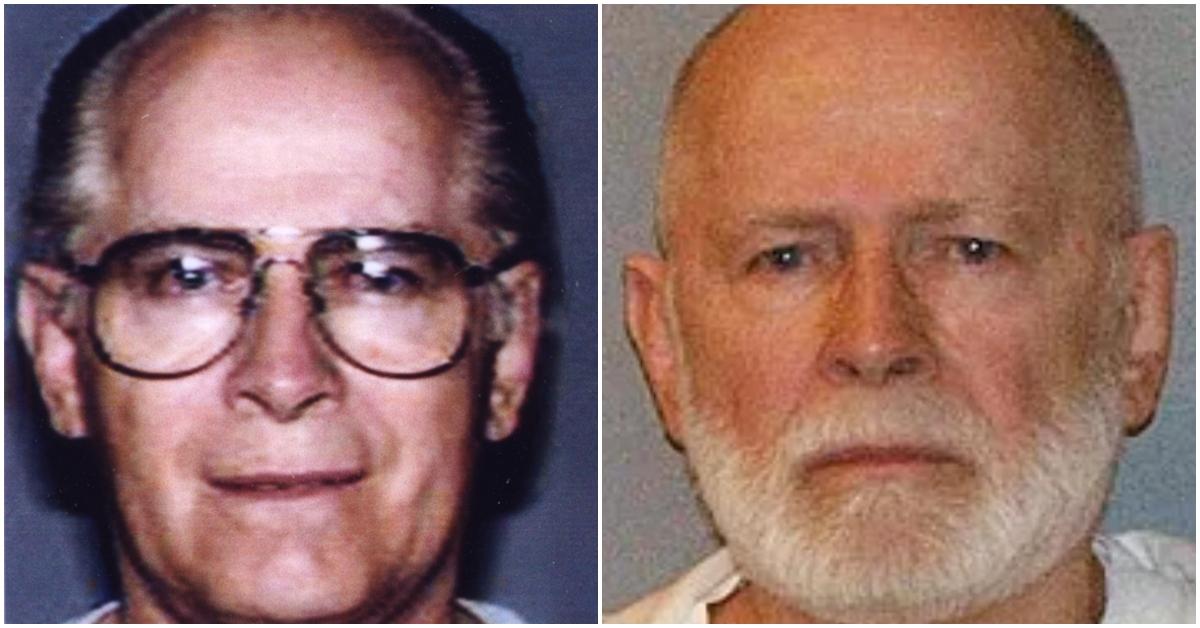
Whitey in 1994 (L) and 2011 (R).
James Joseph "Whitey" Bulger is one of the most notorious gangsters, hit men, and rats in mobster history. He evaded police for 16 years until a neighbor in Santa Monica, CA, recognized him and helped federal agents take him down. He was tried and convicted for racketeering in 2013 and was imprisoned first in Florida, then in Oklahoma, and finally in West Virginia. Shortly after his transfer to FCI Hazelton, the 89-year-old gangster was found beaten to death, his eyes gouged out, and his tongue nearly severed completely in a clear mob hit fueled by Bulger's longtime role as an informant.
Michigan: The disappearance of Jimmy Hoffa
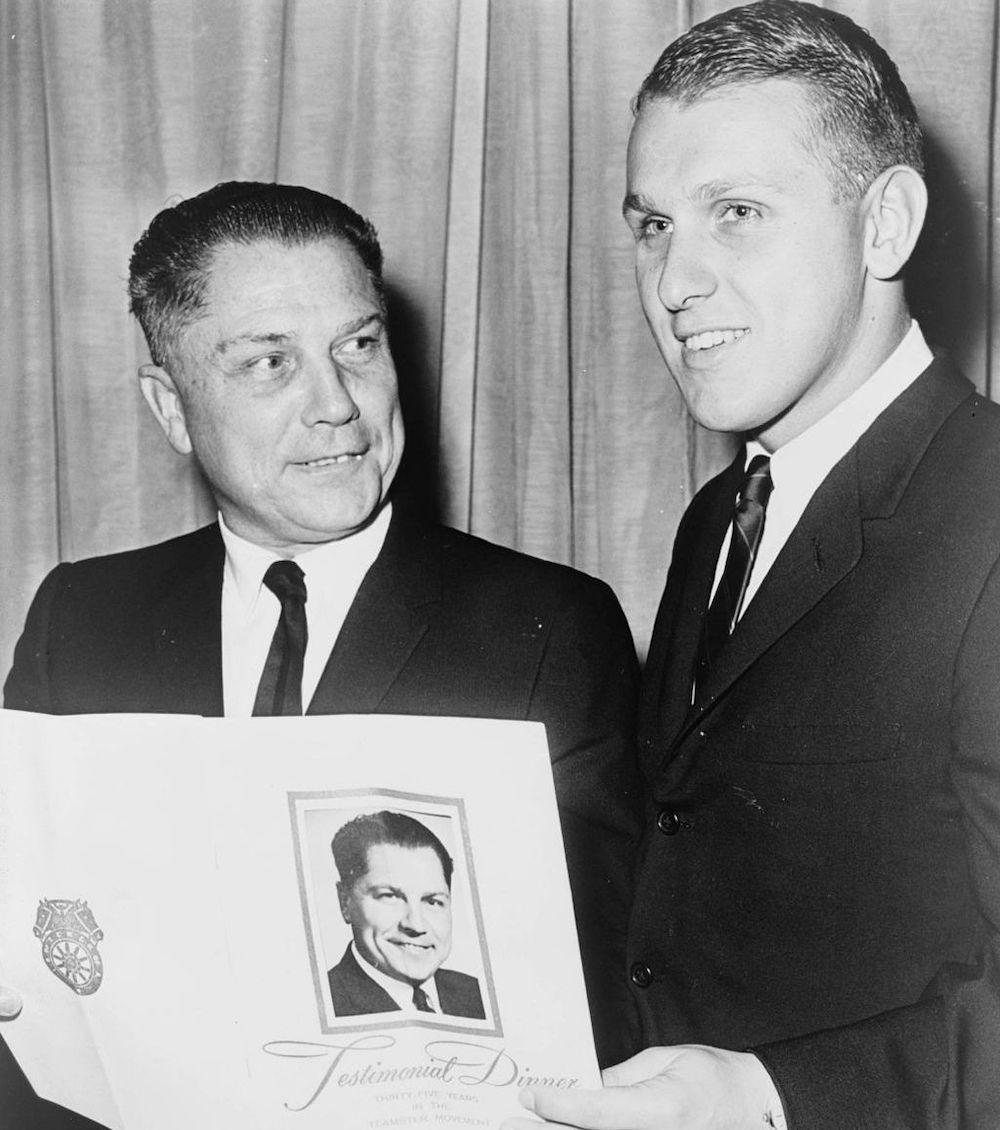
In 1975, labor Teamsters leader Jimmy Hoffa vanished from a restaurant parking lot in Bloomfield, Township, where he told others he had a meeting with two Mafia leaders, Anthony Giacalone, and Anthony Provenzano. He had been involved in organized crime for many years and is presumed dead. Speculation as to what happened has kept him alive in true crime fans' memory all these years, with the prevailing theory for many years holding that he was buried underneath Giants Stadium in New Jersey, though when no human remains were found when the football venue was demolished in 2010.
Minnesota: The murder of Jacob Wetterling
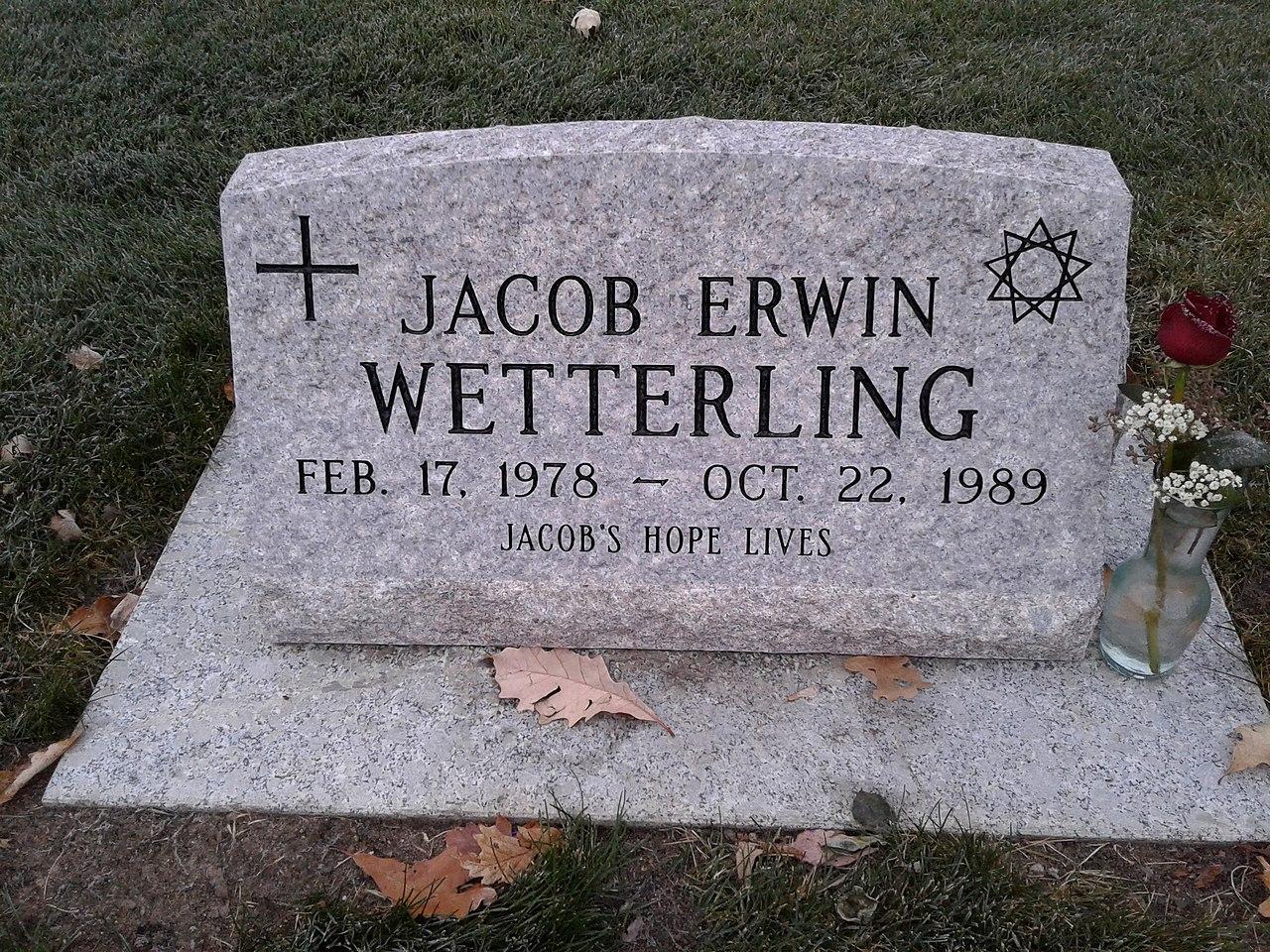
This abduction of 11-year-old Jacob was a mystery for nearly 30 years, until his killer, Danny James Heinrich, led authorities to where he left him as part of a plea bargain. He is also responsible for abducting and sexually assaulting at least one other boy, Jared Scheierl. As part of the agreement, Heinrich wasn't tried for Jacob's murder, and the statute of limitations for his assault on Jared had expired. He was sentenced to 20 years in federal prison for possession of child pornography, but the judge made it clear the trial was really about Jacob.
Mississippi: The murder of Emmett Till
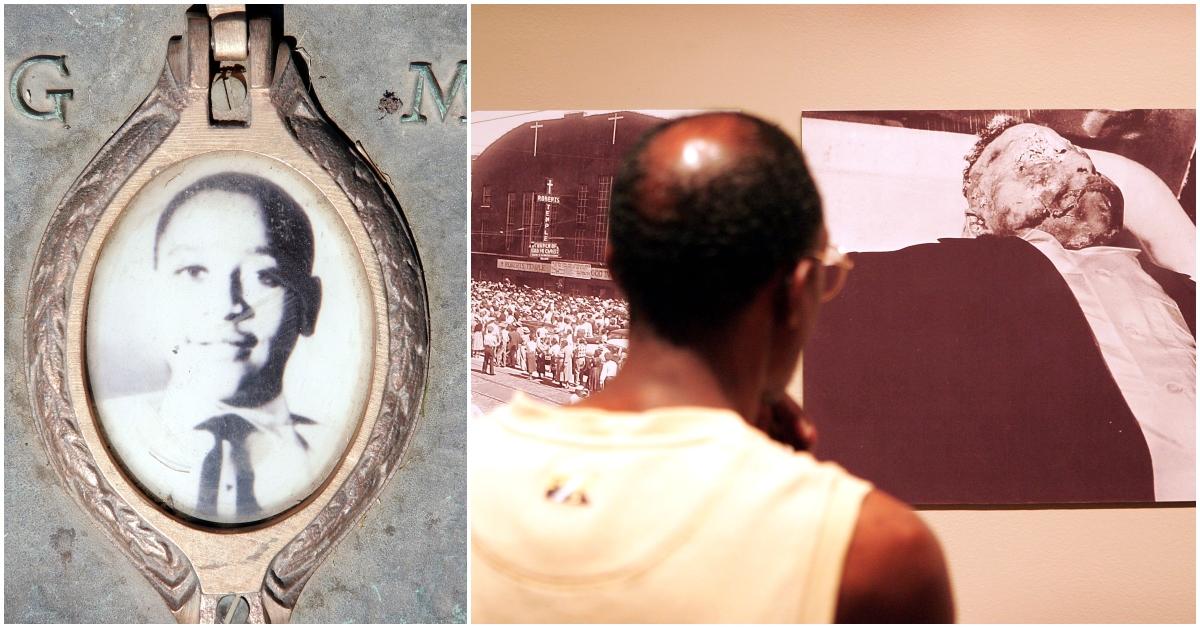
(L) a photo on the plaque marking Till's grave in Aslip, Illinois; (R) a photo of Till's mangled body as part of an exhibit at the Chicago Historical Society.
Emmett Till was 14 years old when he was accused of wolf-whistling at an adult white woman who worked as a grocery clerk. For the supposed offense of hitting on a white and asking her on a date, Carolyn Bryant's husband Roy Bryant and his brother kidnapped the boy from his great uncle's house and tortured, mutilated, and killed him in one of the most infamous lynchings of the Jim Crow era. Accounts of what the young boy did or said are unclear, as Bryant's account changed each time she gave it. However, even she admitted "nothing that boy did could ever justify what happened to him."
Missouri: The murder of Dee Dee Blanchard
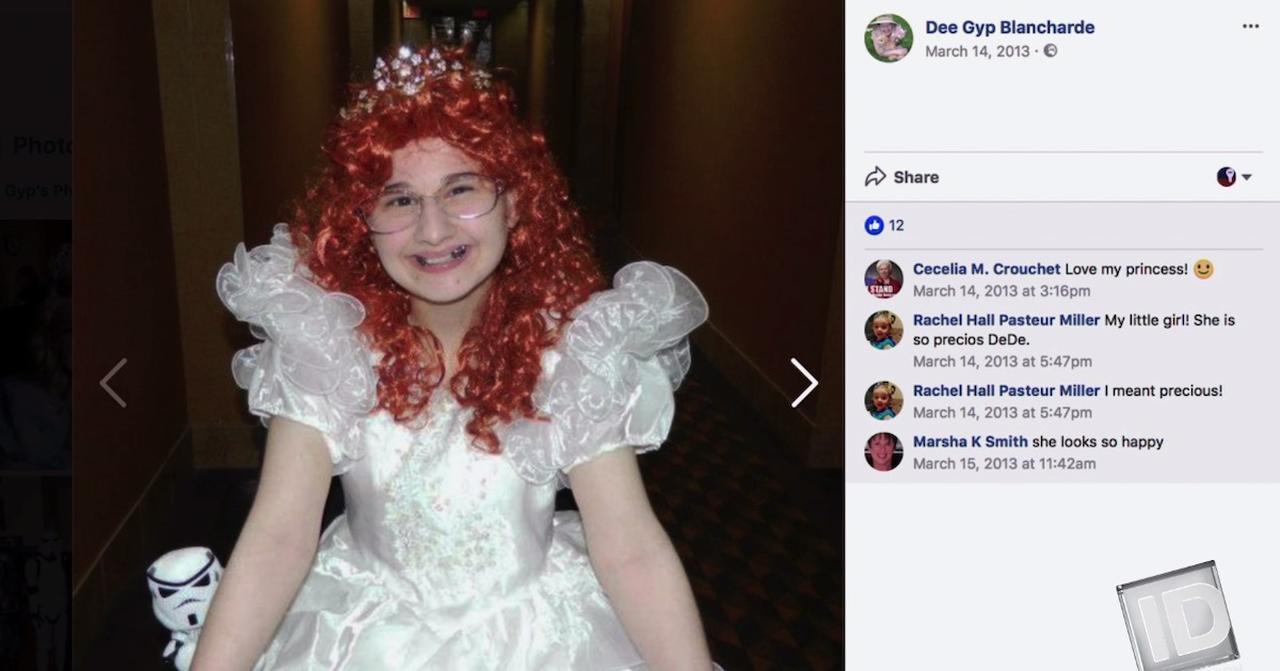
In 2016, Gypsy Rose Blanchard and her boyfriend murdered her mother, Dee Dee Blanchard. For weeks, friends thought someone had kidnapped Gypsy, who was disabled and very ill to their knowledge. Eventually, it came out she was in hiding after having killed her mother after enduring years of abuse. Dee Dee had Munchausen's by proxy and subjected her daughter to physical, mental, and emotional abuse for her entire life. Read more about the story here.
Montana: Serial killer David Meirhofer
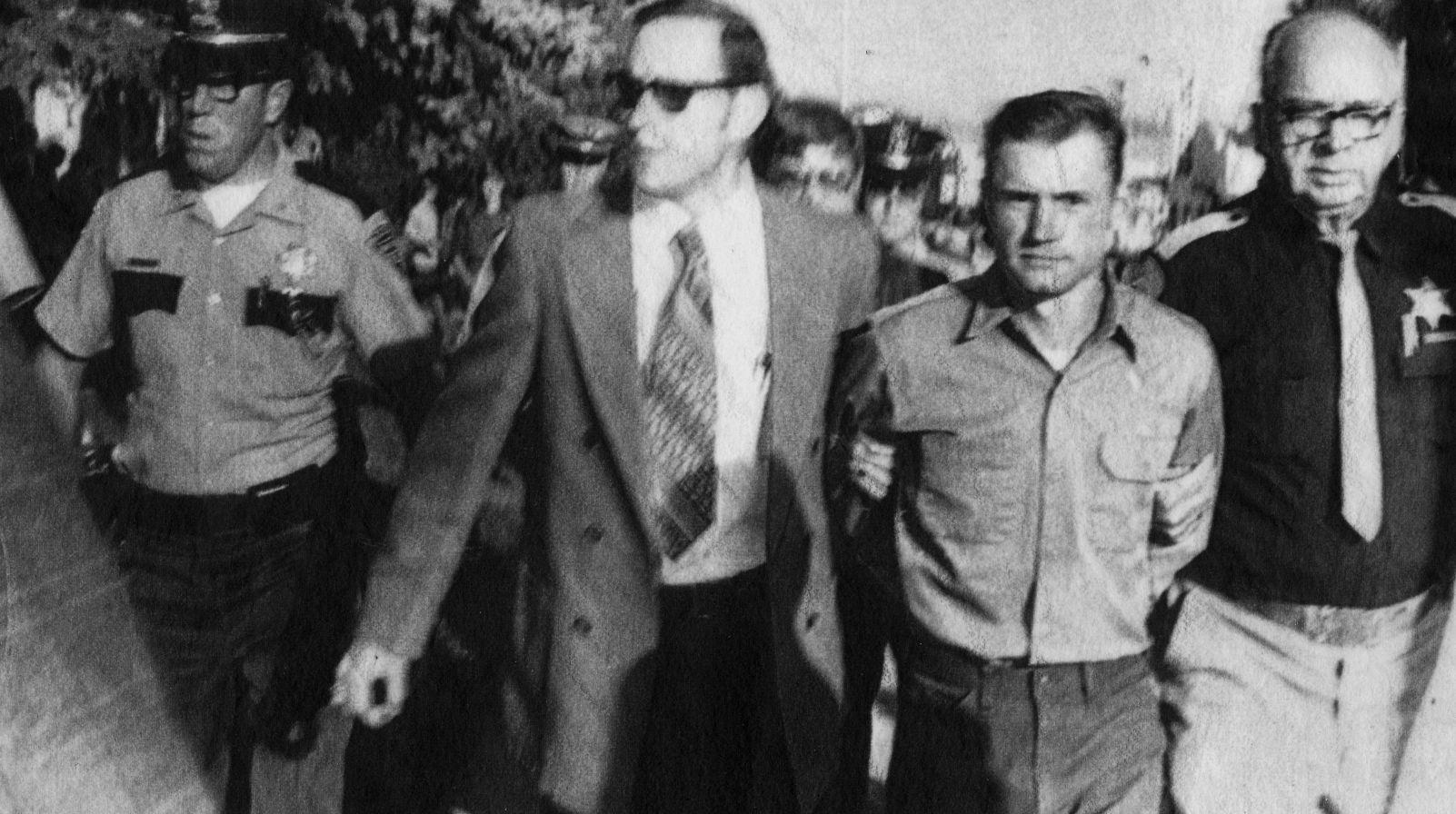
This Montana serial killer murdered three children and one 19-year-old woman between 1967 and 1974 in Gallatin County, MT. The 25-year-old hanged himself in his cell mere hours after confessing to the murders.
Nebraska: Spree killer Charles Starkweather
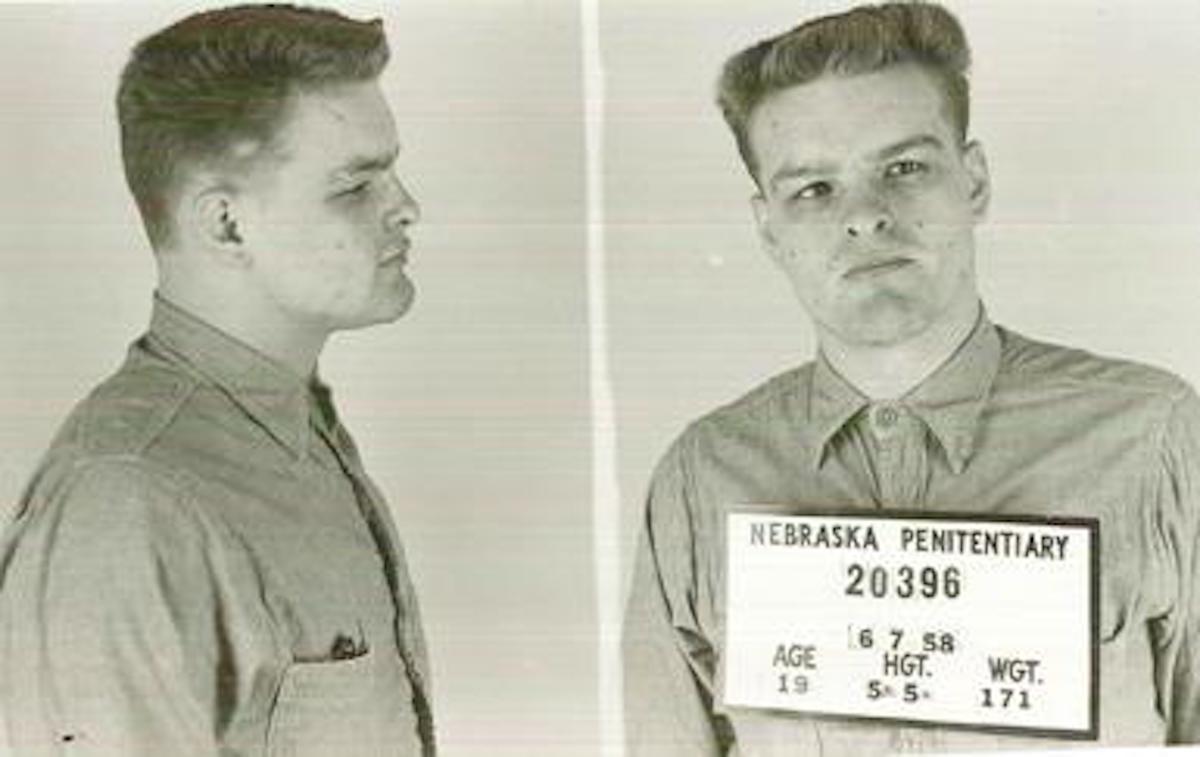
Nebraska's natural born killer Charles Starkweather was 18 when he met his girlfriend, 14-year-old Caril Ann Fugate. Two years later, they would embark on a two-month murder spree through Nebraska and Wyoming. He killed 11 total. Fugate claims she was a hostage, but Starkweather testified she was a willing accomplice. They inspired many films, most notably Natural Born Killers.
Nevada: The murder of Tupac Shakur
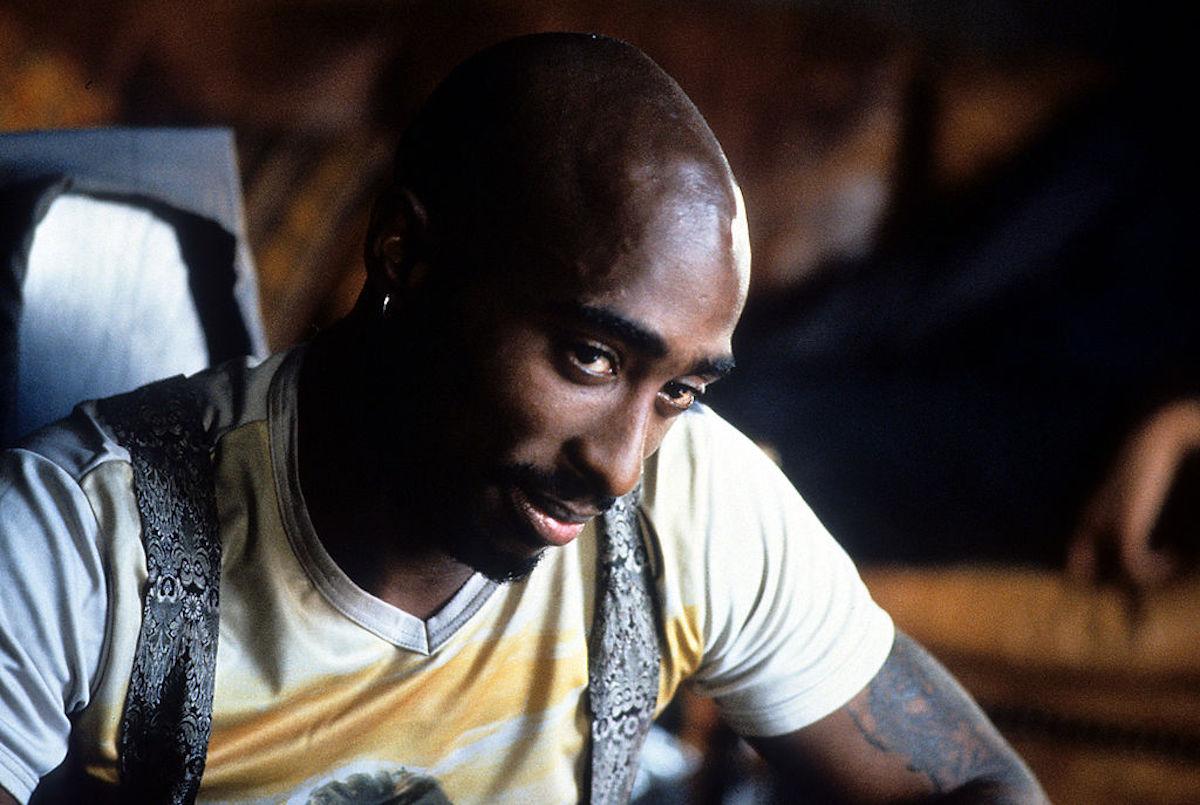
After attending a boxing match at the MGM Grand on September 7, 1996, Tupac was gunned down while riding in a white Cadillac with Death Row Records CEO Suge Knight. He died of his injuries six days later. The murder remains unsolved, though many believed The Notorious B.I.G., AKA Christopher Wallace, was involved. Six months later, Wallace was killed in a second drive-by many suspect was in retaliation for Shakur's death.
New Hampshire: The Bear Brook murders

An artist rendering of the four Bear Brook victims
New Hampshire's most notorious crime is an unsolved serial murder case involving four female victims killed between 1977 and 1985. The first two victims' remains, those of an adult woman and young girl, were found in a 55-gallon metal drum by a hunter on November 10, 1985. In May 2000, two more girls were discovered in a second metal drum. All are believed to have died by blunt force trauma. Though not officially solved, authorities believe Rob Evans, AKA Terrence Peder Rasmussen, was responsible for all four deaths. He was the father of one of the unidentified victims, though the woman she was found with was not her mother.
New Jersey: The Lindbergh baby kidnapping and murder
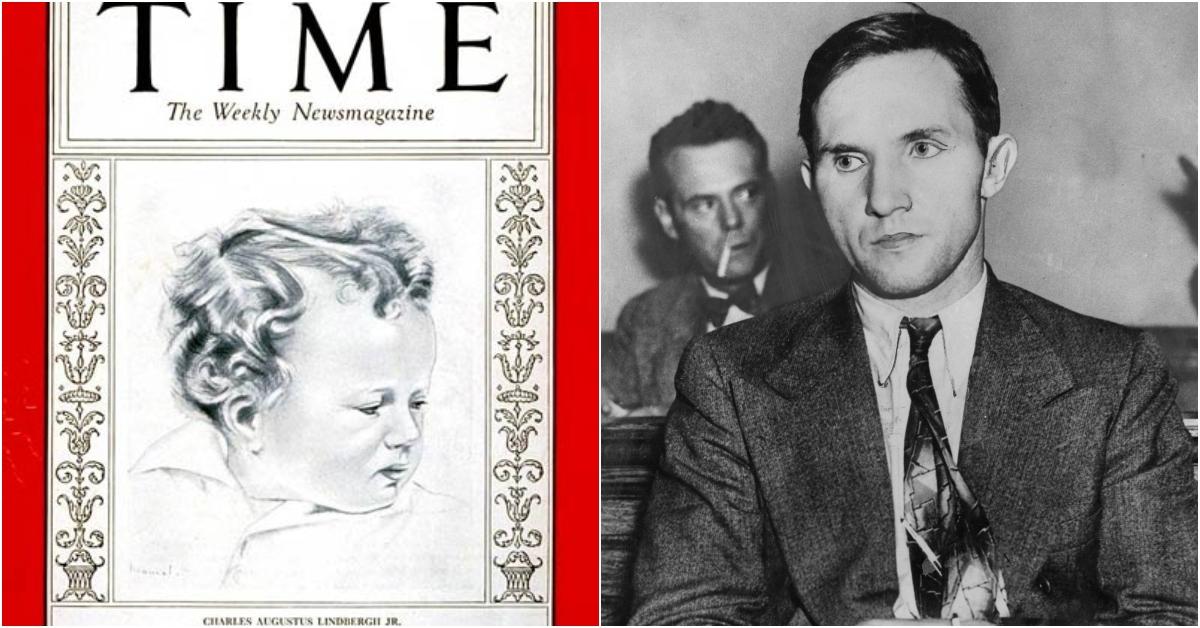
(L) Illustration of Charles Jr. on the cover of Time magazine on May 2, 1932; (R) Bruno Richard Hauptmann faces trial in Flemington, NJ
New Jersey's most notorious crime was the kidnapping of the 18-month old son of aviator Charles Lindbergh and his wife Anne Morrow Lingbergh, on the evening of March 1, 1932. Charles Jr.'s body was found over two months later, on May 12, less than five miles from the Lindberghs' home in East Amwell. A medical examination determined he died from a massive skull fracture, which possibly occurred when the boy was dropped as he was carried down a ladder from his second-floor bedroom. Ransom money paid to the perpetrator led police to Bruno Hauptmann, whose trial was dubbed the Trial of the Century by newspapers. Though he received an offer to commute his death sentence to life imprisonment in exchange for his confession, Hauptmann went to the chair professing his innocence.
New Mexico: The murder of Girly Chew Hossencofft
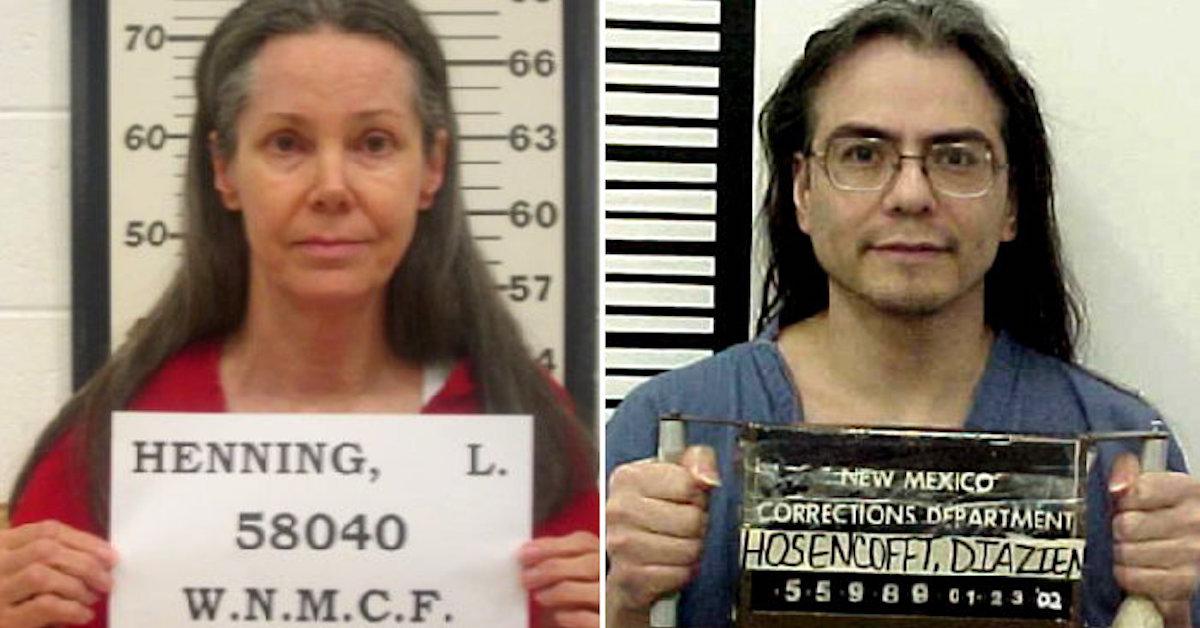
Malaysian-born Girly Chew's husband Diazien Hossencofft (born Armand Chavez) claimed to be a surgeon and sold fake cancer treatments, but that wasn't his most heinous crime. While still married to Girly, Diazien got engaged to Linda Henning, a woman who shared his interests in UFOs and conspiracy theories. They plotted to get rid of Girly so they could be together. Though Girly's body was never recovered, significant blood and forensic evidence ensured her killers will spend the rest of their lives in jail.
New York: David Berkowitz, aka the Son of Sam
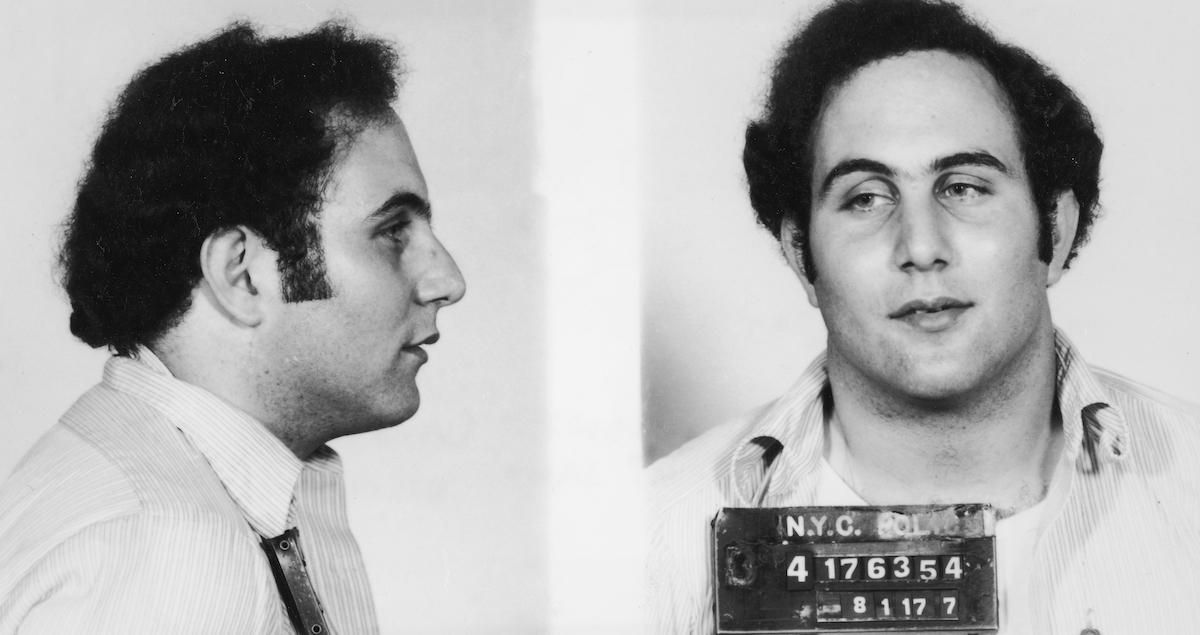
The summer of 1976 will forever be remembered as one of the most frightening times in New York history. Most of the shootings happened in Queens and The Bronx, all with a .44 caliber revolver. The terror increased when the killer began leaving notes claiming to be the "Son of Sam," a demon compelling him to kill. Upon capture, Berkowitz told police his neighbor's dog, Sam, was possessed by a demon and he was Sam's servant. However, this appears to have been a plot to get an insanity plea, and Berkowitz later recanted that part of his story, admitting his killings were driven by a desire to get revenge on a world he felt had rejected him.
North Carolina: The Lawson Family Christmas Day massacre
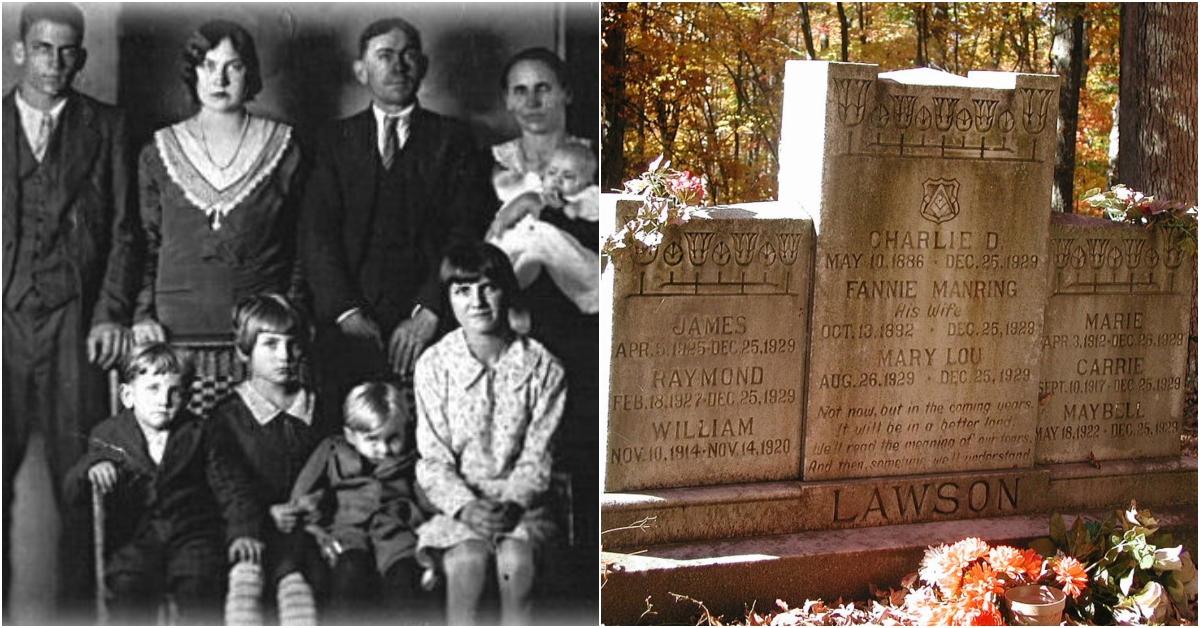
On Christmas in 1929, tobacco farmer Charlie Lawson murdered his wife and six of his seven children. The only survivor was his eldest son, 16-year-old Arthur, whom he had sent on an errand just before committing the crime. Lawson then went into the woods and shot himself. Not long after the family was annihilated, Lawson's brother Marion turned the murder house into a tourist attraction. A raisin cake Lawson's wife Marie had baked for Christmas dinner was displayed on the tour and visitors would take raisins as souvenirs until the cake was eventually protected with glass. No explanation ever surfaced for the sudden familicide. Sole survivor Arthur died in a car accident 16 years later at age 32.
North Dakota: The Wolf family murders
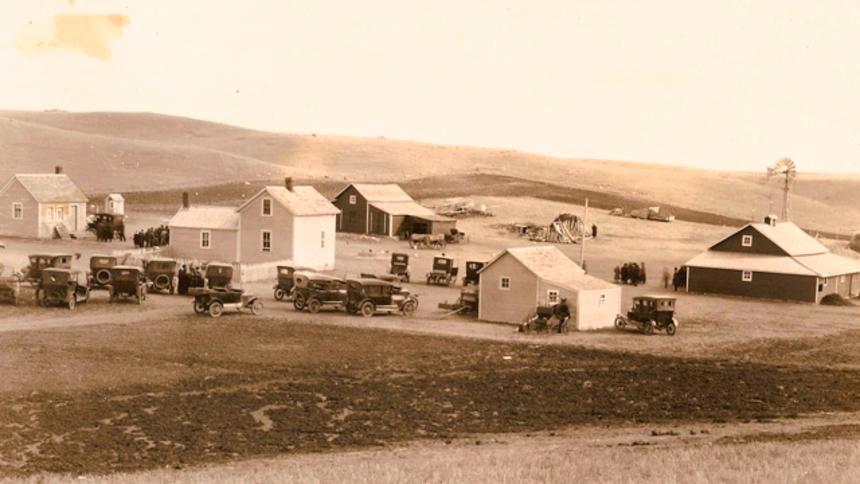
Yet another family annihilation with one survivor. Jacob Wolf and his family, plus a son of a neighbor who did chores for the family, were found dead on their Turtle Lake farm in 1920. The youngest, an 8-month-old baby girl, was in her crib, alive, but the rest of the home's residents were found either shot to death or bludgeoned with a hatchet. It was later determined their neighbor, Henry Layer, killed the family, all in a dispute over an attack by their family dog on Layer's cow. As for why he left the baby alive: "The reason I did not kill the baby was, I believe, because I did not go into the room in which the baby lay," he said.
Ohio: Ariel Castro kidnappings
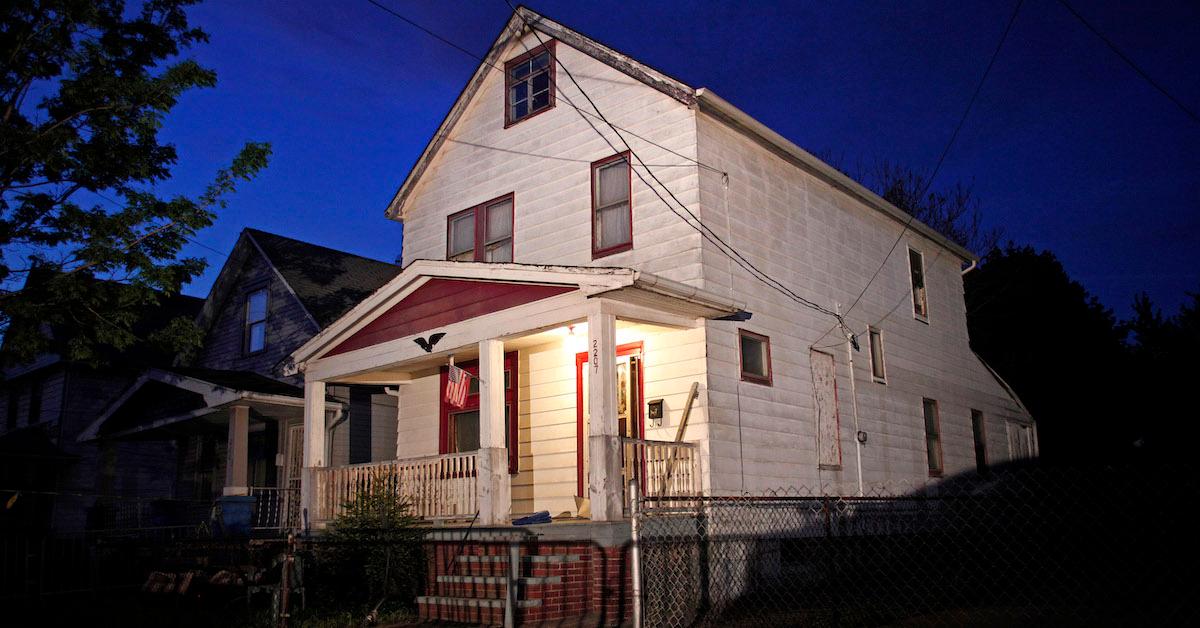
Castro's home.
Ariel Castro kidnapped three women between 2002 and 2004 — Michelle Knight, Amanda Berry, and Gina DeJesus — keeping them in his Cleveland home until May 6, 2013, when Michelle and her 6-year-old daughter escaped and went to the police. The women were subjected to a decade of unspeakable abuse and rape. Castro died by suicide in prison September 3, 2013, one month after he was sentenced to life. The house that served as his victims' prison has been demolished.
Oklahoma: The Oklahoma Girl Scout Murders

Michelle Heather Guse, 9, Lori Lee Farmer, 8, and Doris Denise Milner, 10,
Oklahoma's most disturbing crime in history is the murder of three Girl Scouts at Camp Scott in 1977. The victims were between the ages of 8 and 10, and were raped and murdered. Their bodies were found on a trail leading to the camp's showers. Authorities arrested an escaped convict, Gene Leroy Hart, but he was acquitted. Still, local sheriffs are convinced they had the right man. Hart died in prison in 1979, where he was serving a sentence for unrelated kidnapping and rape charges.
Oregon: DB Cooper
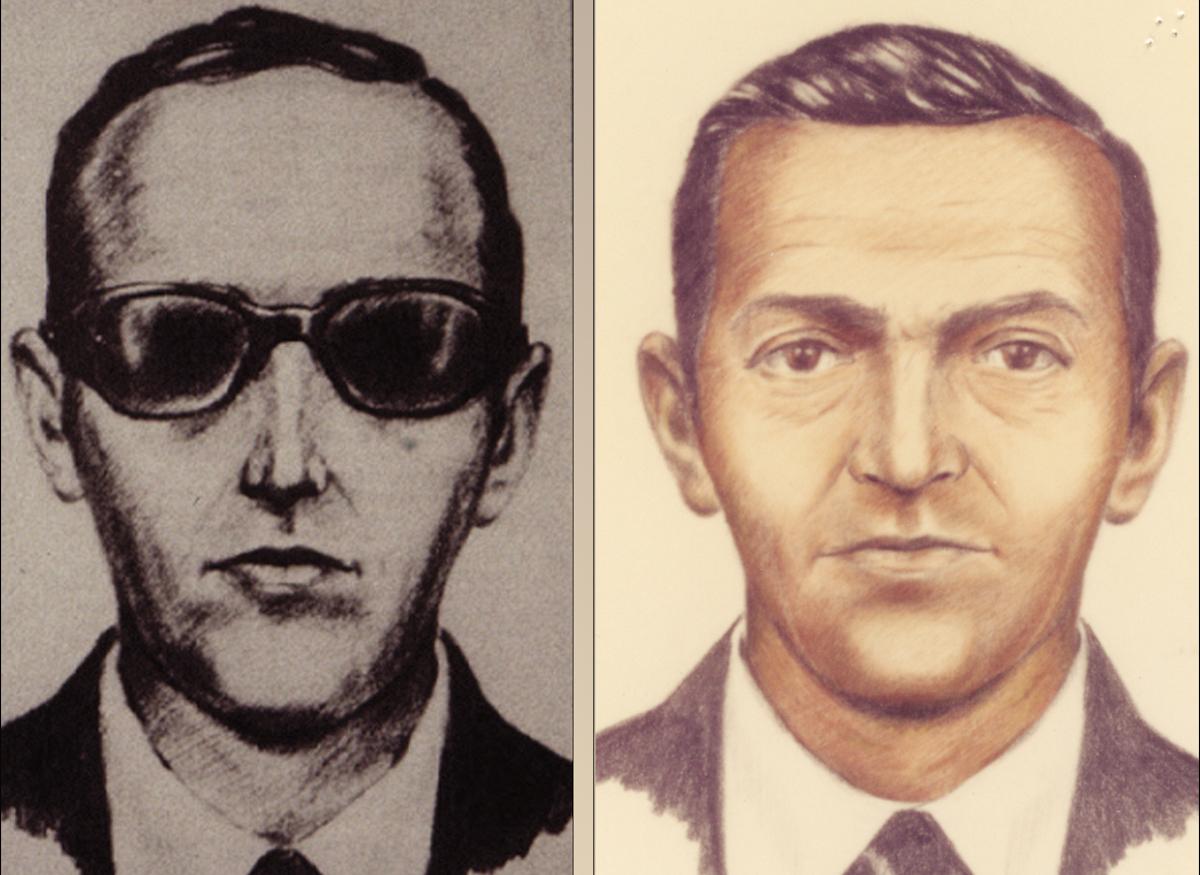
In the early 1970s, airline hijackings were rampant, but one incident in particular stands out from the rest: the cast of D.B. (AKA Dan) Cooper. He parachuted out of a plane with $200,000 in ransom money somewhere between Seattle and Portland, never to be seen again. Though authorities doubt he survived the risky jump, DB Cooper has been a source of endless intrigue and speculation ever since, with a long string a possible suspects.
Pennsylvania: Charles Cullen
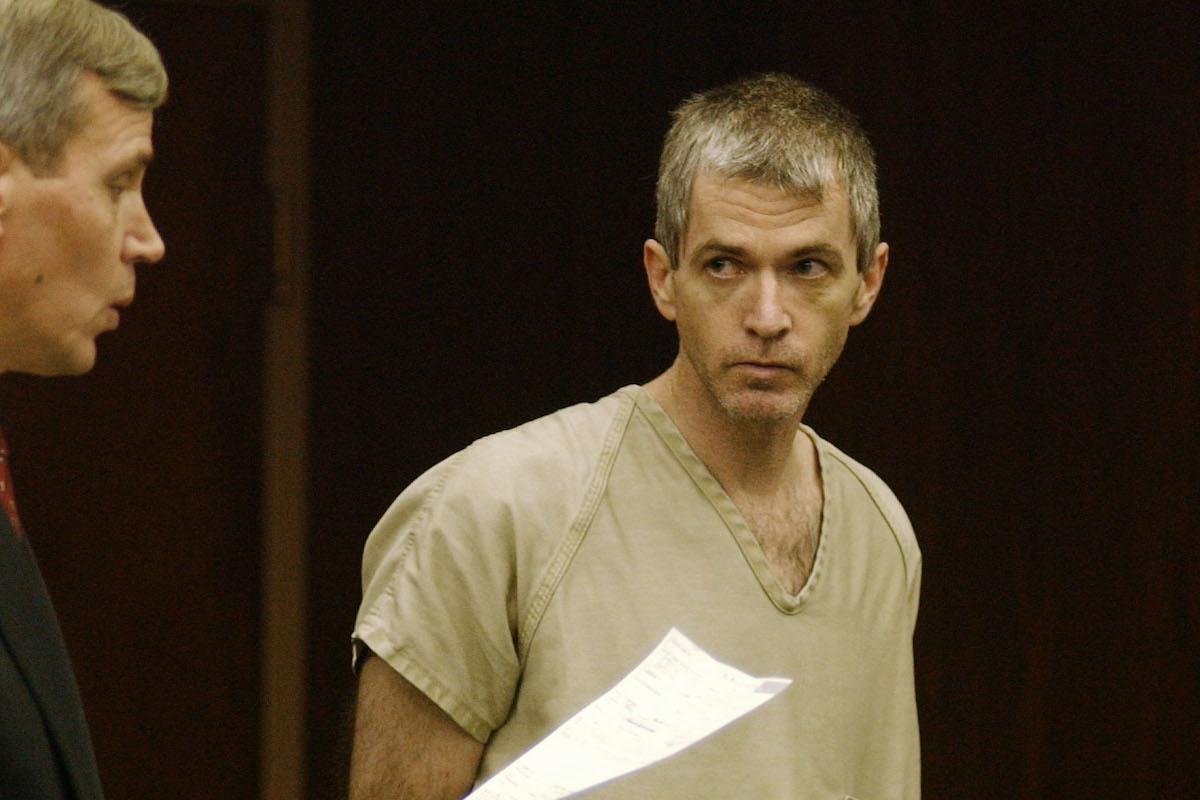
This nurse has one of the highest body counts in state history, with more than 30 confirmed and possibly hundreds more. Though Cullen claimed he was helping end the suffering of terminal patients, other hospital personnel described many of the victims as having been on the mend when Cullen ended their lives.
Rhode Island: Craig Price, the Warwick Slasher
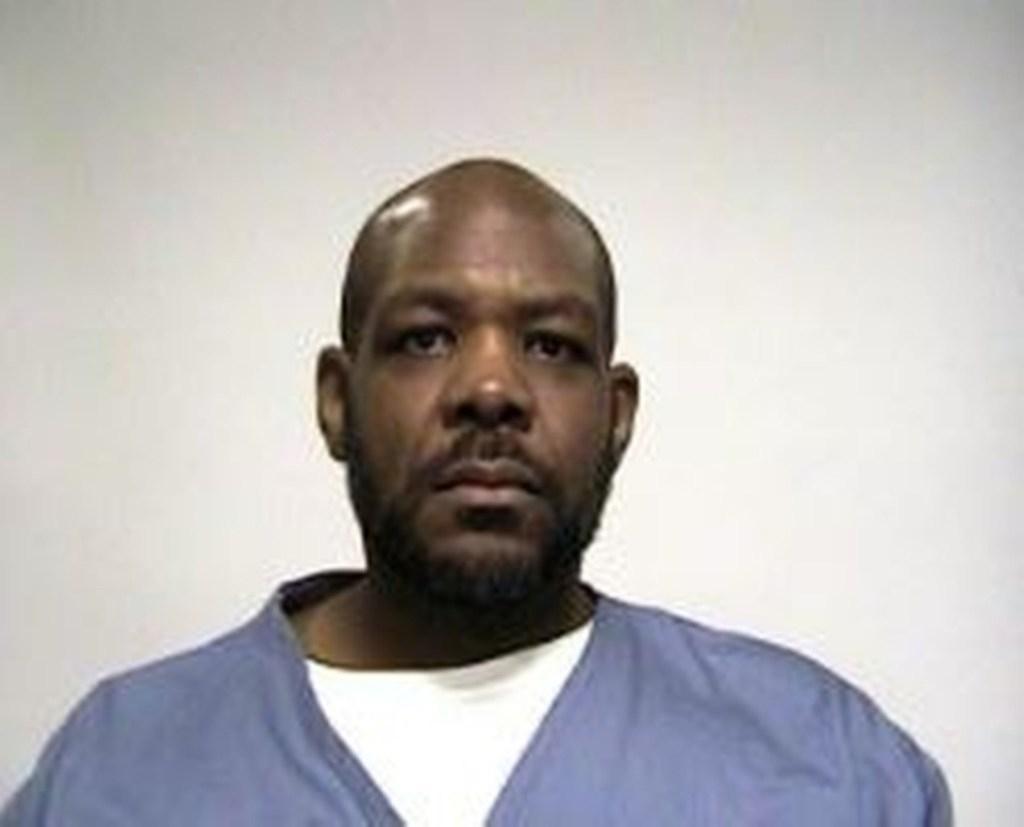
Between the ages of 13 and 15, Craig Price killed four female victims. Due to his youth, he was tried as a minor, which would have made him eligible for release at age 21 with a sealed conviction. However, due to numerous assaults on other inmates, Price's sentence continues to lengthen. Though he is scheduled for release in 2020, a recent attempted murder on another inmate will likely delay that release.
South Carolina: Susan Smith
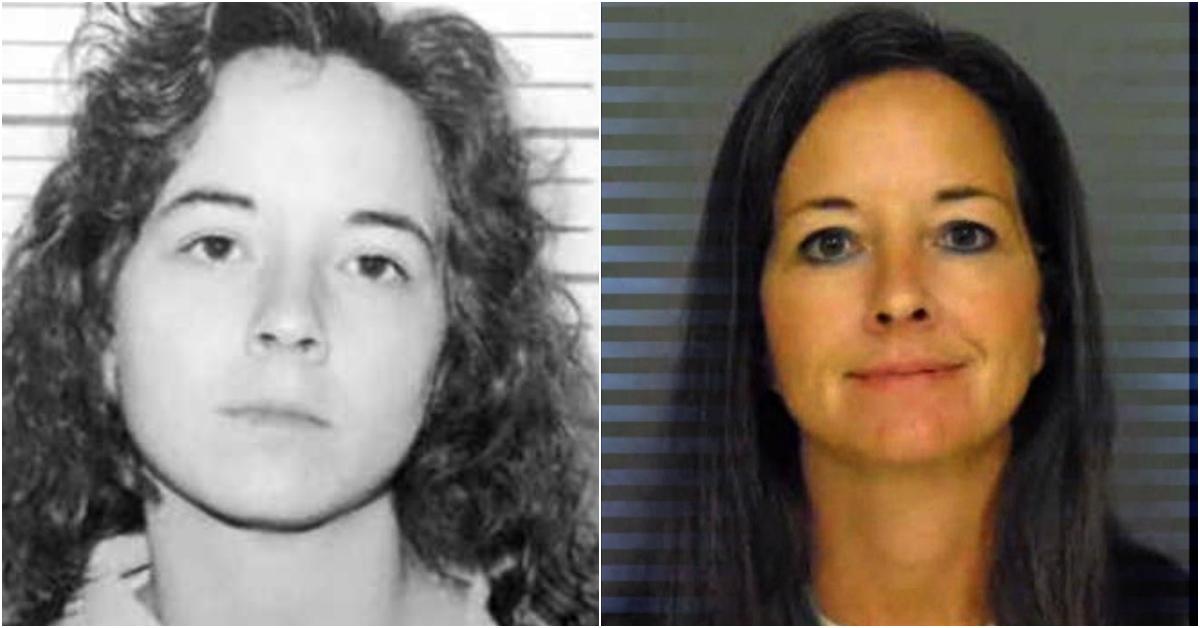
Susan Smith is a child murderer who claimed a black man had carjacked her at gunpoint and drove off with her two sons in the car in 1994. She later confessed to letting the car roll into John D. Long Lake with 14-month-old Alex and 3-year-old Michael inside. Smith will be eligible for parole on November 4, 2024, after serving a minimum of 30 years.
South Dakota: Robert Leroy Anderson
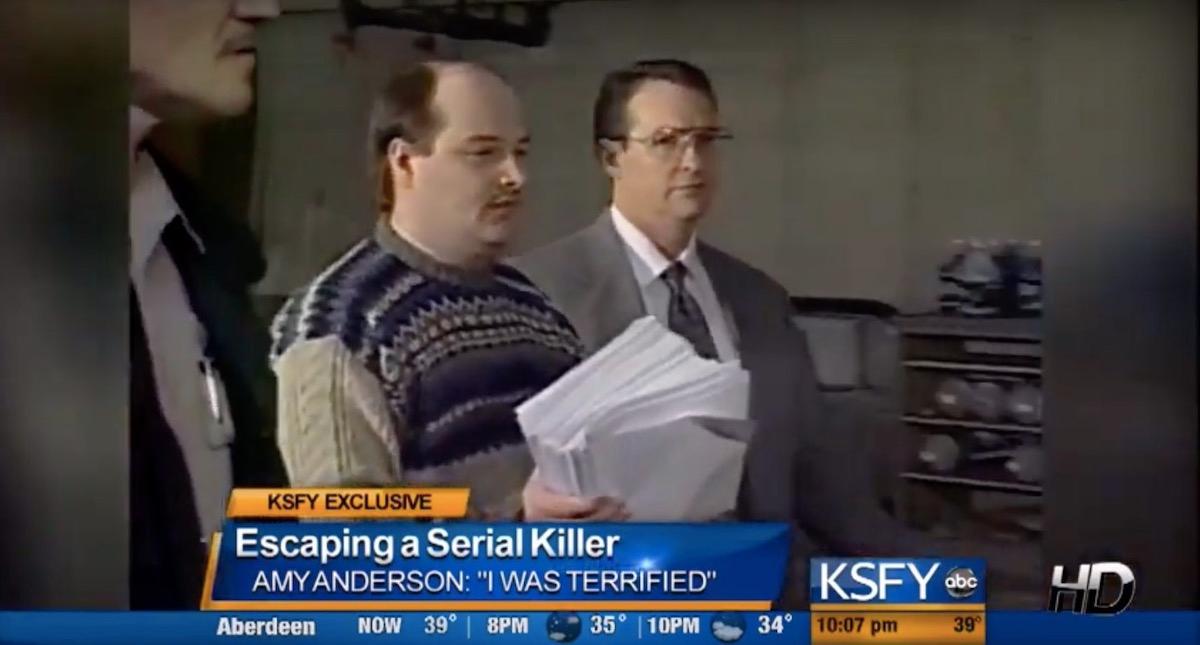
Anderson was convicted of kidnapping and killing Larisa Dumansky of Sioux Falls in 1994 and Piper Streyle of rural Canistota in 1996. A third potential victim, Amy Anderson, escaped before she could meet a similar fate. He was sentenced to death by lethal injection in 1999, but took his own life on death row in 2003. Police believe he was a serial killer who would have taken more victims had he not been captured.
Tennessee: The assassination of Rev. Dr. Martin Luther King, Jr.
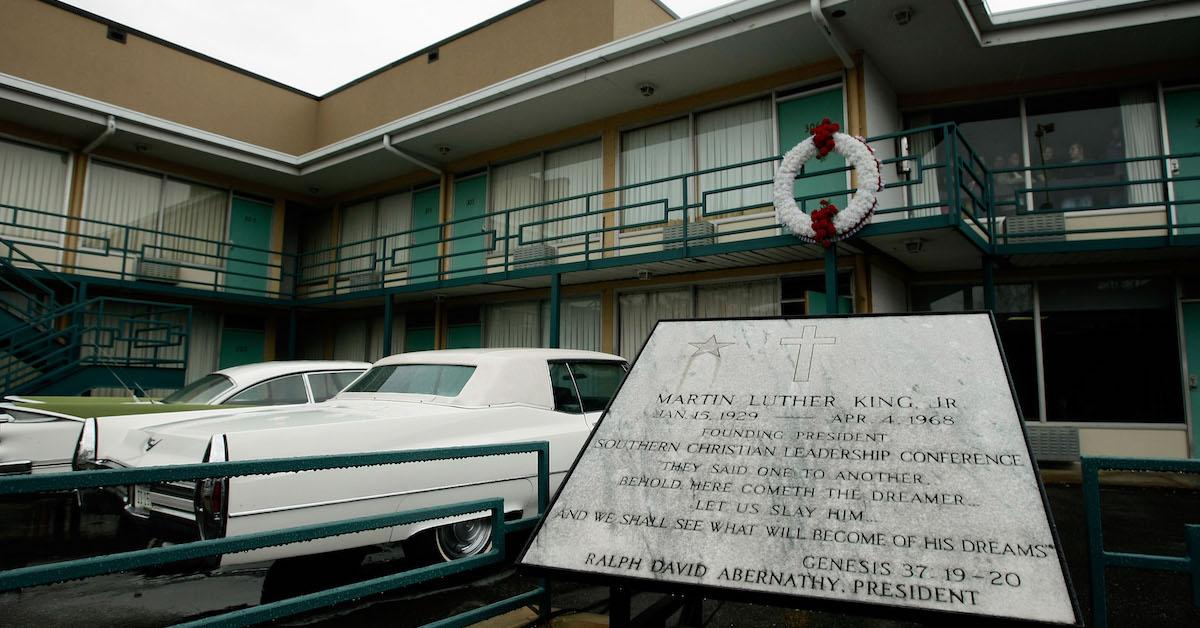
Martin Luther King, Jr. was shot to death on the second floor of the Lorraine Hotel, now part of the National Civil Rights Museum in Memphis, TN
Martin Luther King Jr. was assassinated on April 4, 1968, by James Earl Ray at the Lorraine Hotel, a frequent outpost for the civil rights leader. The assassination led to race riots in several U.S. cities. Ray hinted at a conspiracy and tried to withdraw his guilty plea, but he spent the rest of his life in prison for the murder.
Texas: Dean Corll, AKA The Candy Man
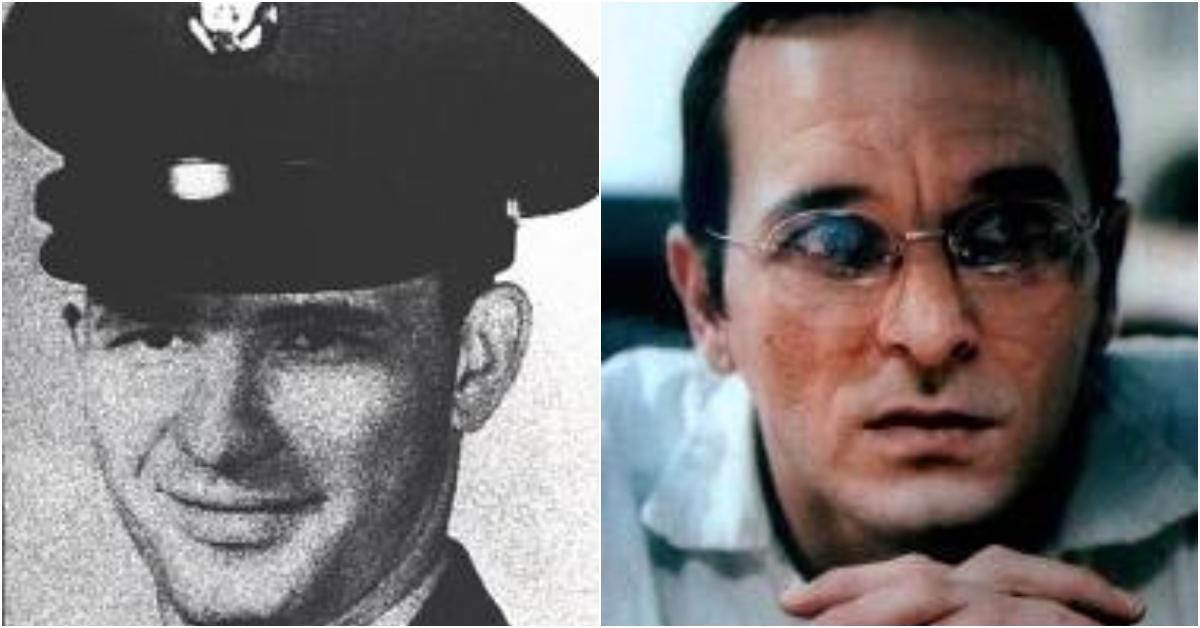
(L) Dean Corll's Army enlistment photo; (R) Elmer Wayne Henley, his accomplice and murderer
Known as the Candy Man and the Pied Piper, Dean Corll raped and murdered at least 28 male victims, enlisting two teenage boys as his accomplices. One of those accomplices, Elmer Wayne Henley, Jr., shot Corll to death in the midst of the torture of two victims, Tim Kerley and Rhonda Williams. Henley and the other accomplice, David Owen Brooks, are currently serving life sentences.
Utah: The Elizabeth Smart kidnapping

Elizabeth Smart was abducted from her home in Salt Lake City at age 14 and held captive for 9 months by Brian David Mitchell and his wife, Wanda Barzee. Elizabeth testified against both her captors in court, detailing daily rape and abuse and threats upon her life and family that kept her from fleeing. Her story of survival and continued advocacy for survivors has inspired millions of Americans.
Vermont: The East Middlebury murders
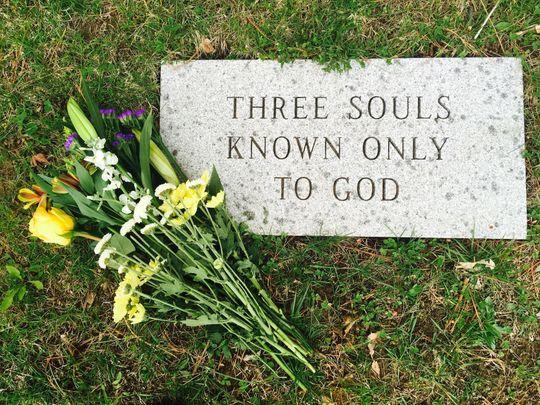
Vermont's most notorious crime is also one if its oldest cold cases. In In 1935, three bodies presumed to be a mother and her two children were dumped on the roadside five miles from downtown Middlebury. They were never identified nor was their killer, but true crime sleuths in the state are still trying to unlock the mystery.
Virginia: The Virginia Tech massacre
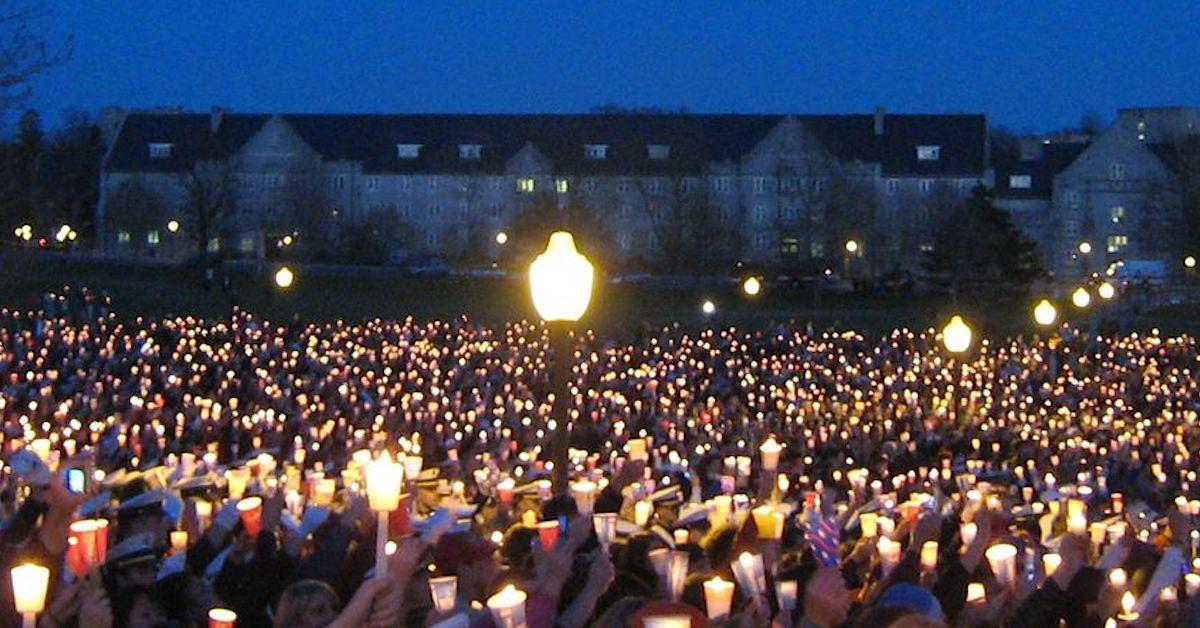
a candlelight vigil held for the victims of the Virginia Tech massacre.
On April 16, 2007, Virginia Tech student Seung-Hui Cho shot 49 people on campus with two semi-automatic pistols, killing 32 and wounding 17. It remains the deadliest school shooting in history and by far the deadliest massacre in mordern Virginia history.
Washington: Ted Bundy
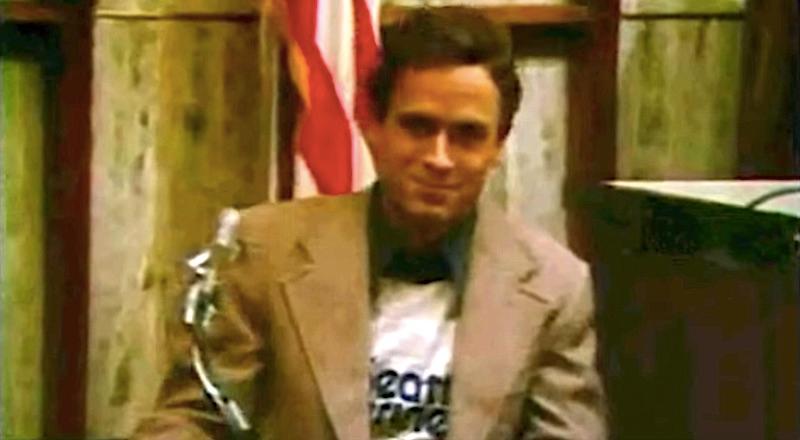
Lots of states could claim Ted Bundy as their most notorious killer, but he belongs to Washington for the terror he inflicted upon college students for two years, claiming the lives of at least 11 women there before moving on to Colorado, Utah, and Florida. Bundy was executed by the state of Florida 30 years ago, yet he remains one of the most intriguing serial killers of all time.
West Virginia: The murder of Skylar Neese

(L-R) SheilaEddy, Rachel Shoaf, and Syklar Neese.
In 2012, 16-year-old Skylar Neese snuck out of her home and disappeared. Six months later, her body was found, and two "friends" who decided they no longer liked Skylar copped to plotting and executing hermurder. Shelia Eddy pleaded guilty to first-degree murder and was sentenced to life in prison with the possibility of parole after 15 years. Rachel Shoaf also pleaded guilty and received a sentence of 30 years in prison, and will be eligible for parole after 10 years.
Wisconsin: Jeffrey Dahmer

Wisconsin's most notorious killer not only raped, murdered, and dismembered his male victims — he also committed acts of cannibalism and necrophilia. He was captured when his last victim, 32-year-old Tracy Edwards, escaped and led police to Dahmer's apartment. Sadly, they could have caught the killer much earlier. Fourteen-year-old Konerak Sinthasomphone managed to escape and three women tried to help him, but Dahmer convinced police they were romantically involved and that they had a minor domestic dispute. Dahmer killed him and at least four others before he was caught. In 1994, fellow inmate Christopher Scarver beat Dahmer to death in a prison bathroom.
Wyoming: The murder of Matthew Shepard
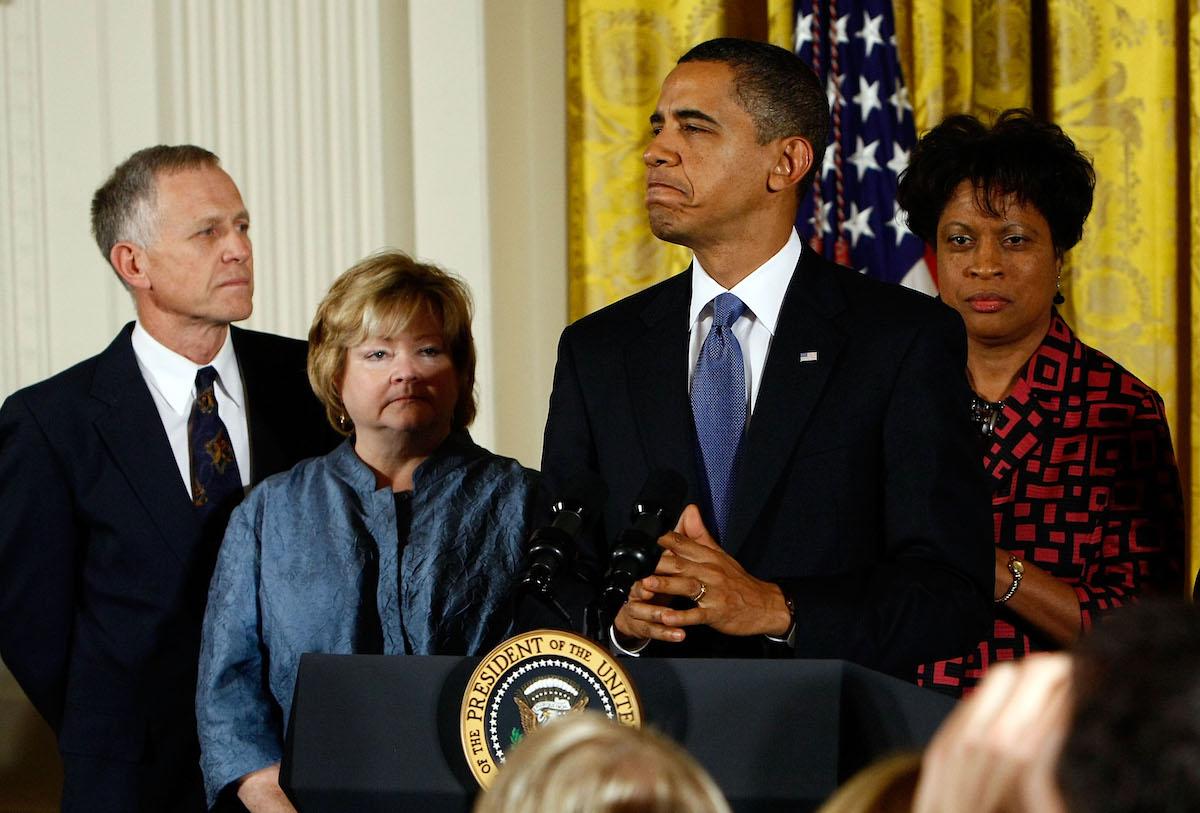
Matthew was a student at the University of Wyoming who was beaten, tortured, and left to die on a fence near Laramie on the night of October 6, 1998. He died six days later of his injuries. The attack by Aaron McKinney and Russell Henderson was a robbery, and their girlfriends testified the killers pretended to be gay to lure Matthew into a false sense of security. McKinney's lawyer later tried to mount a defense that "gay panic" caused his client to lash out at Matthew, but the judge rejected this defense. Matthew's legacy lives on through his parents, who have been devout activists for gay rights, victim's rights, and hate crime legislation since their son's death. In 2009, President Obama signed into law the "Matthew Shepard and James Byrd, Jr. Hate Crimes Prevention Act" with Matt's parents, Dennis and Judy, present.